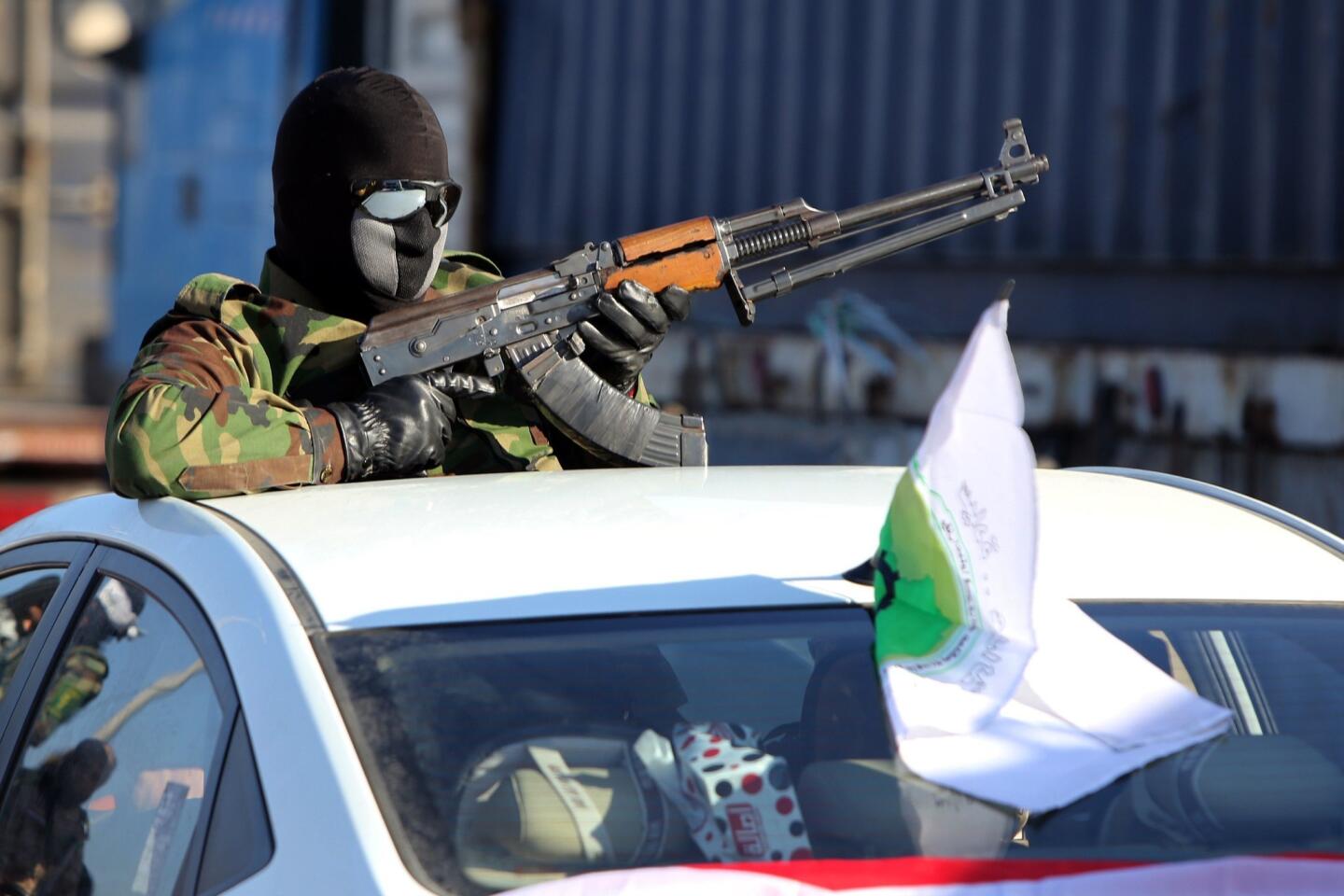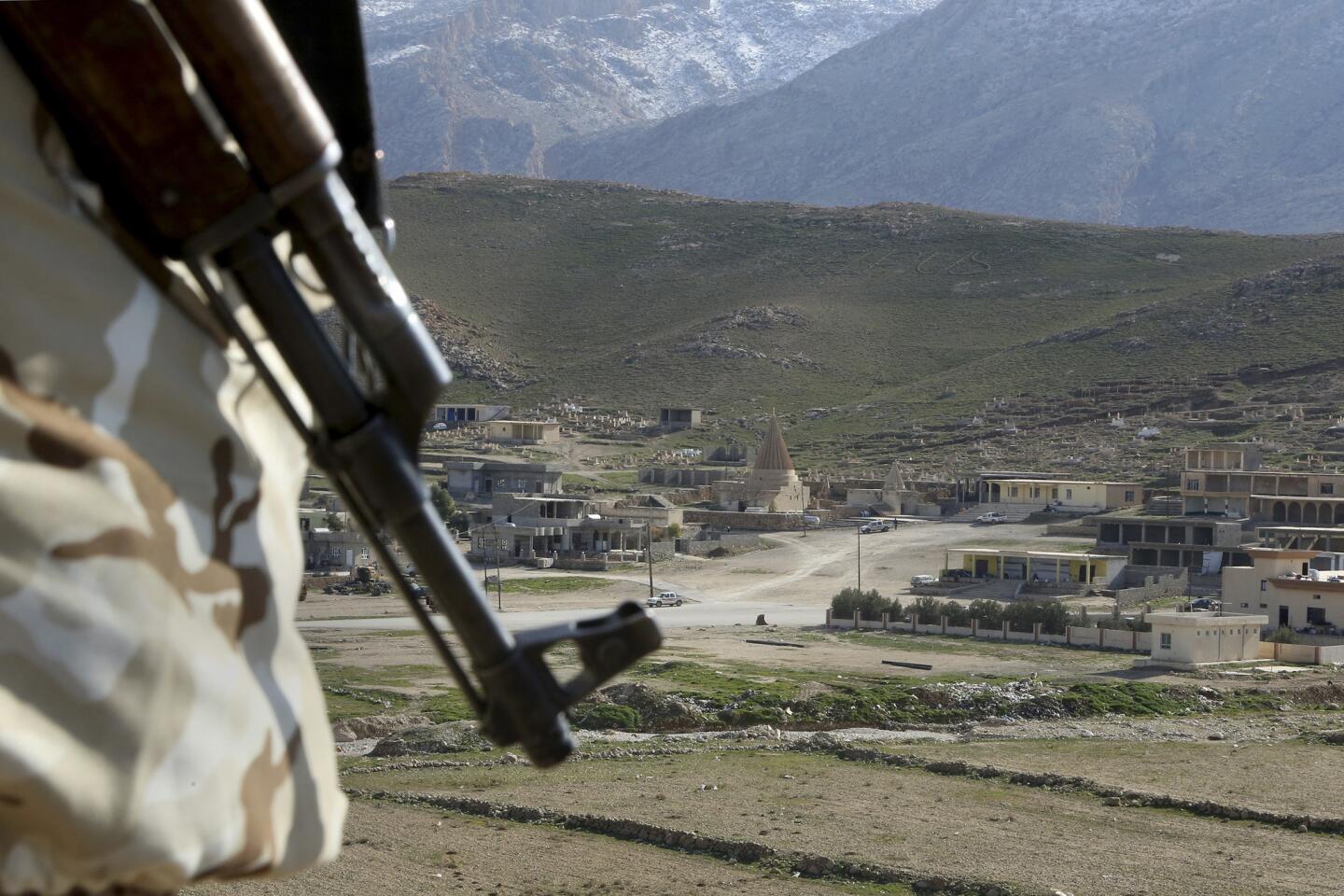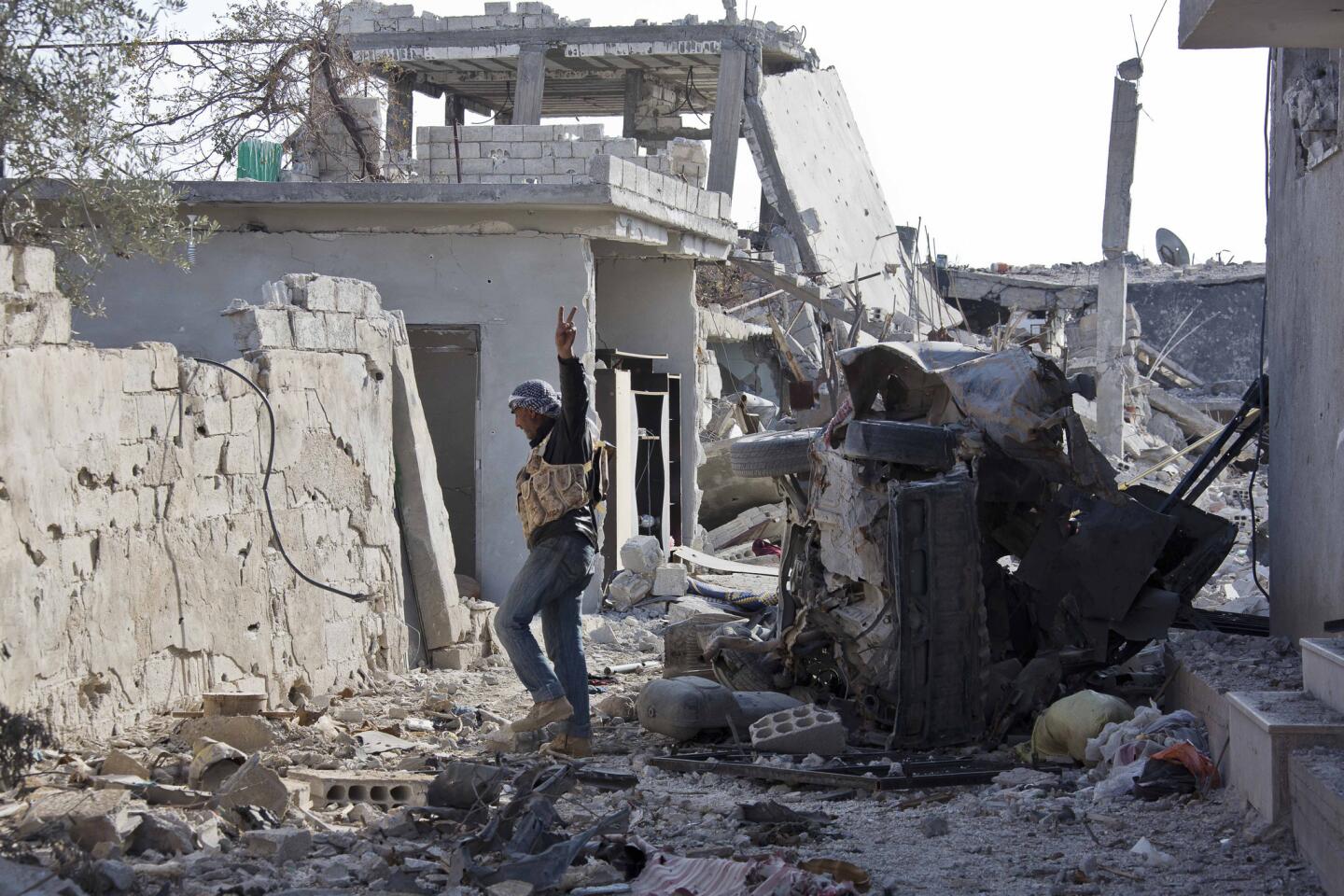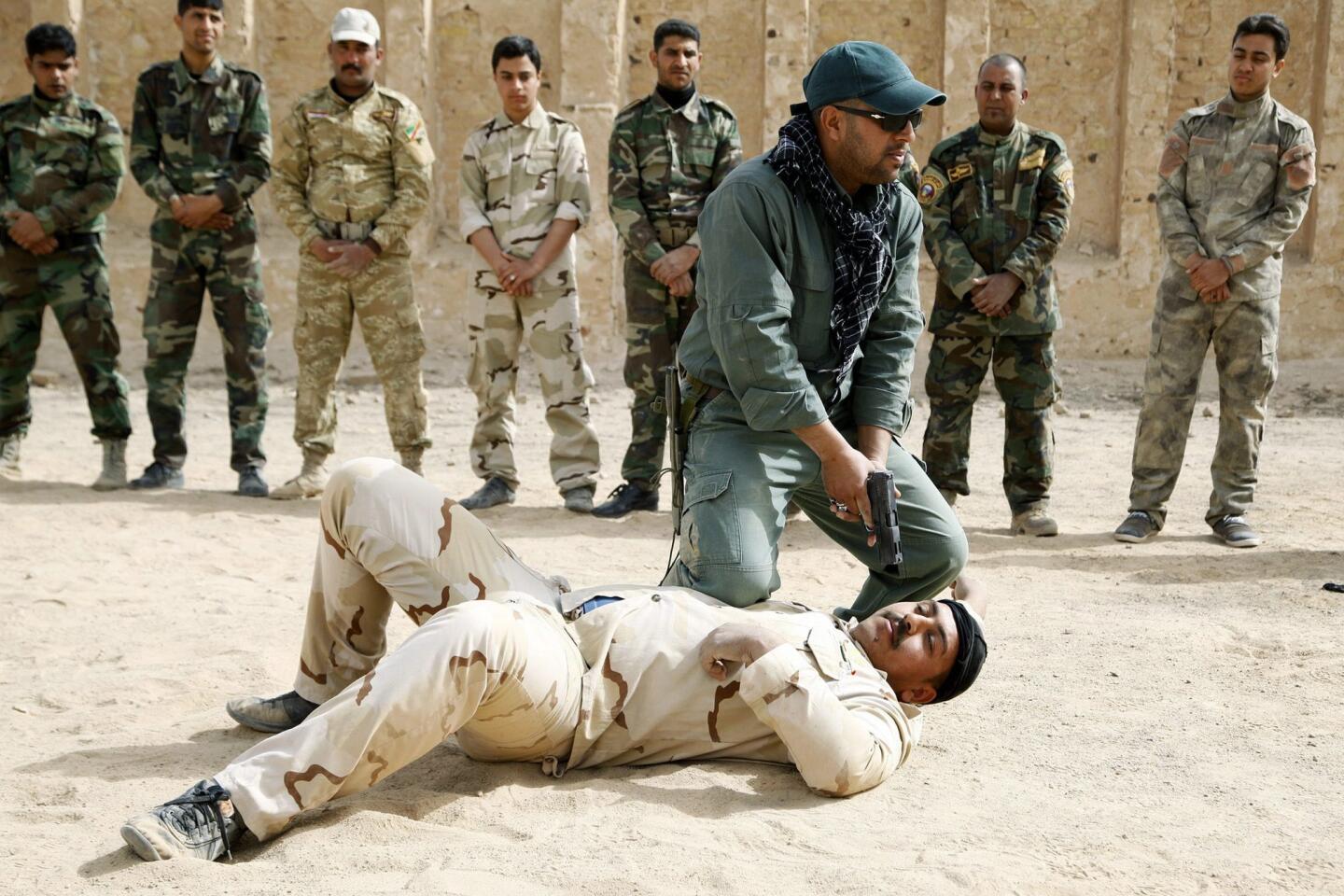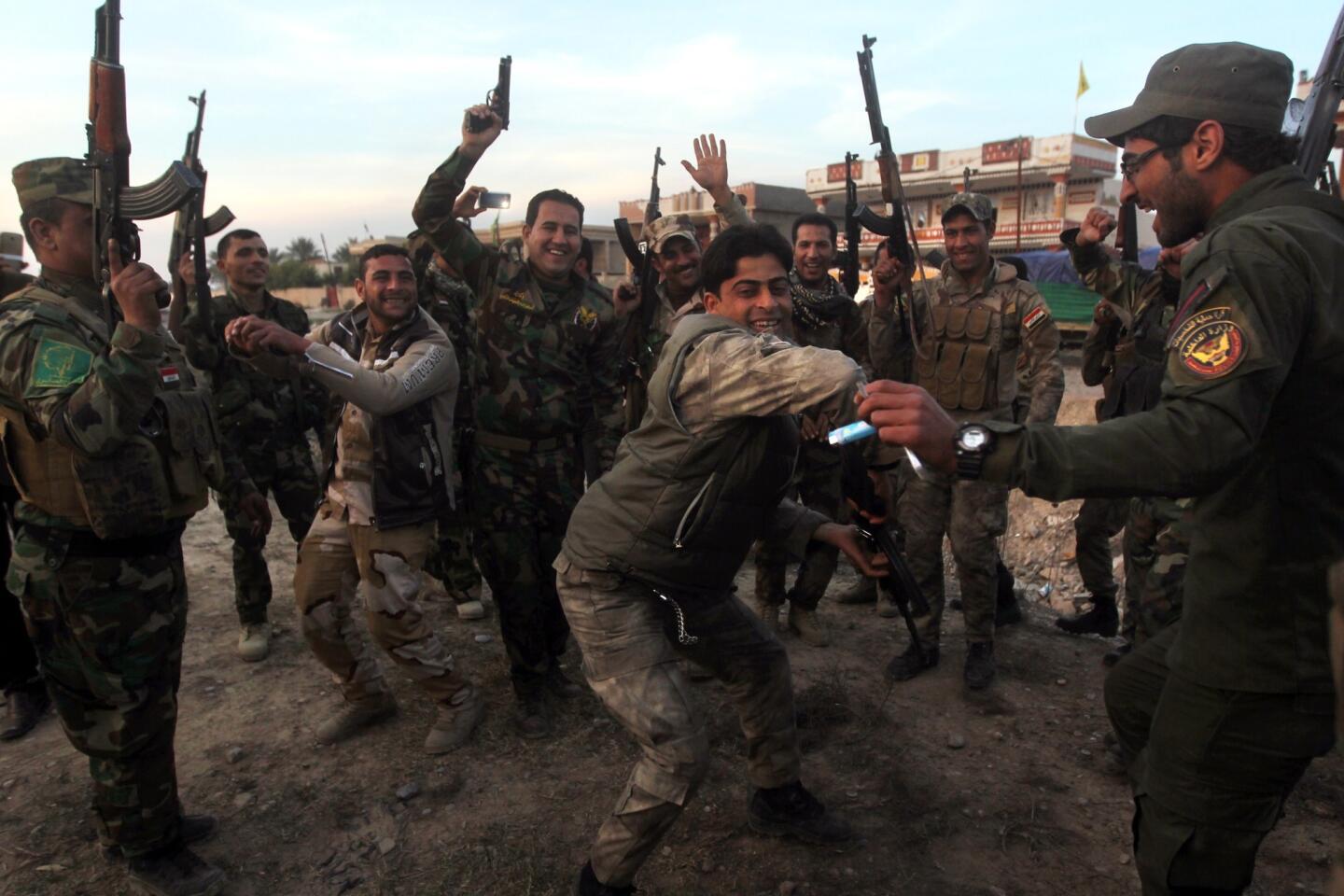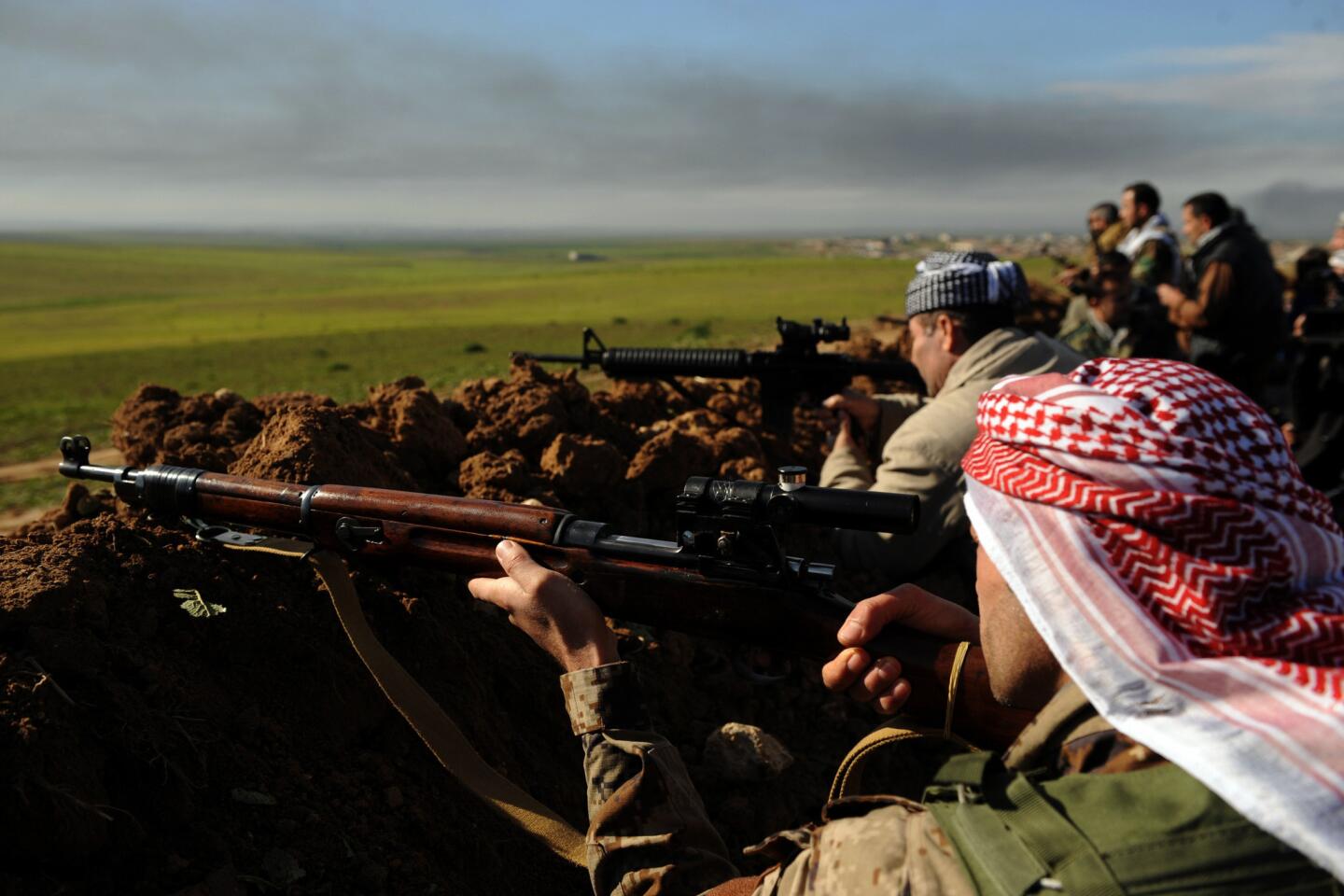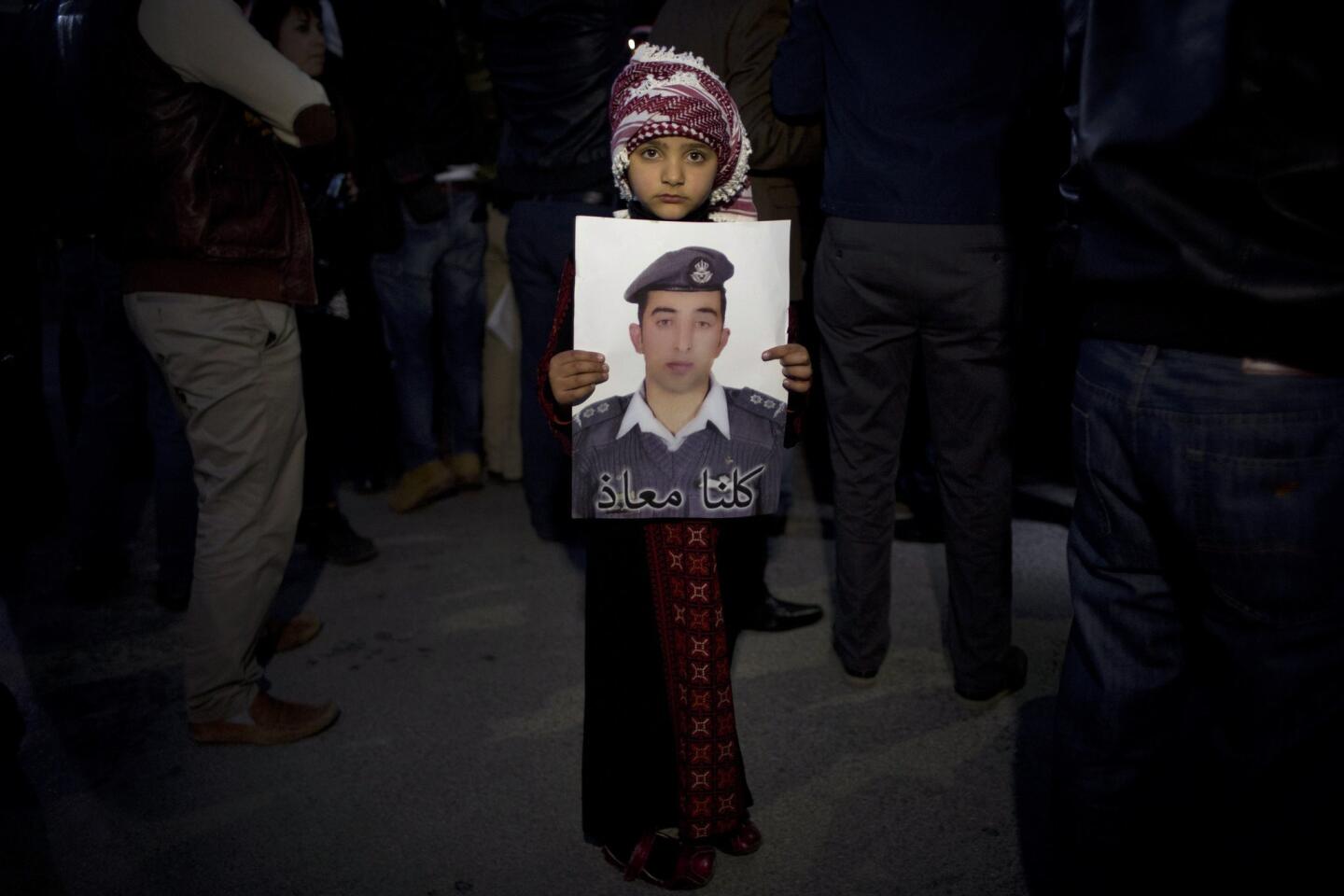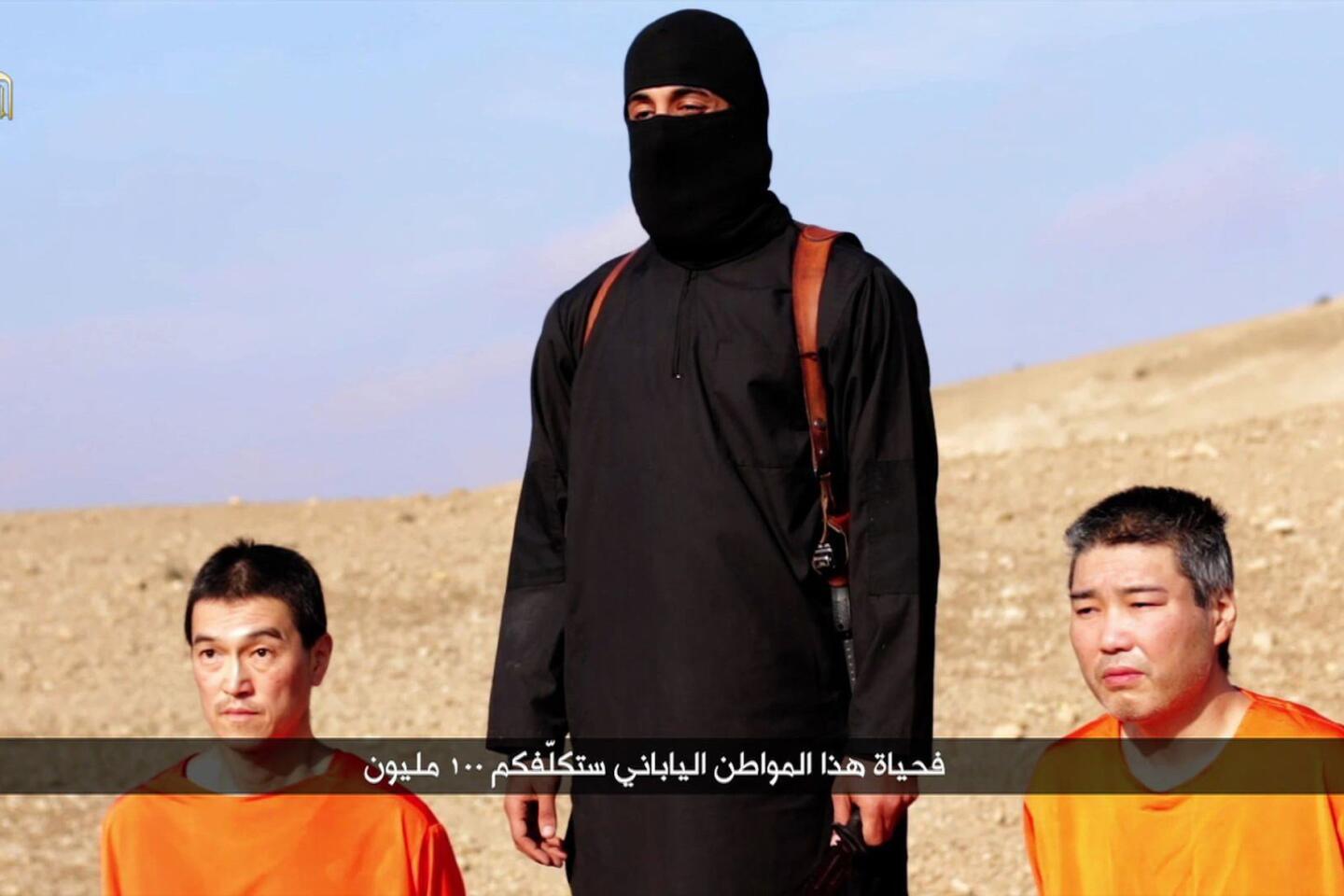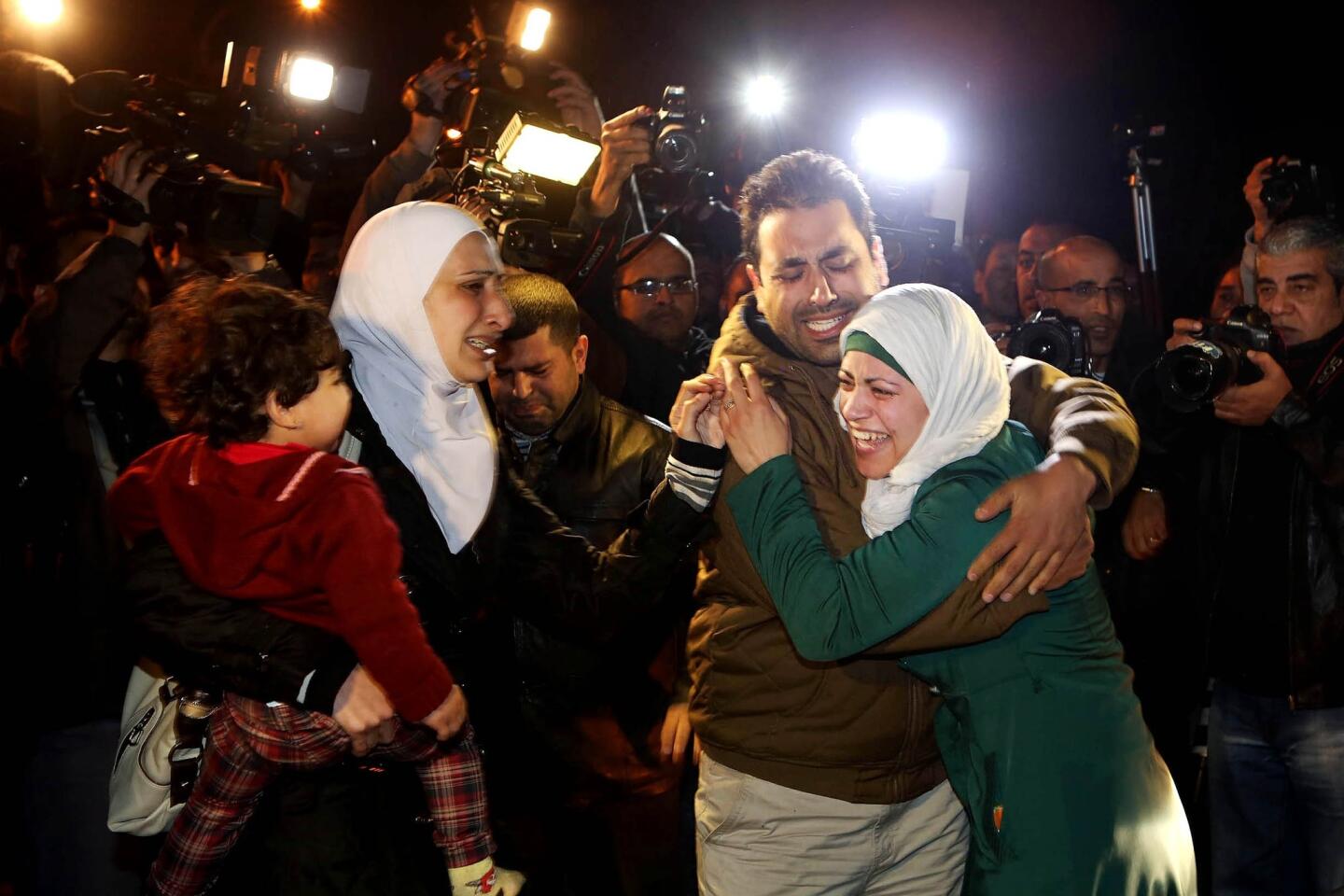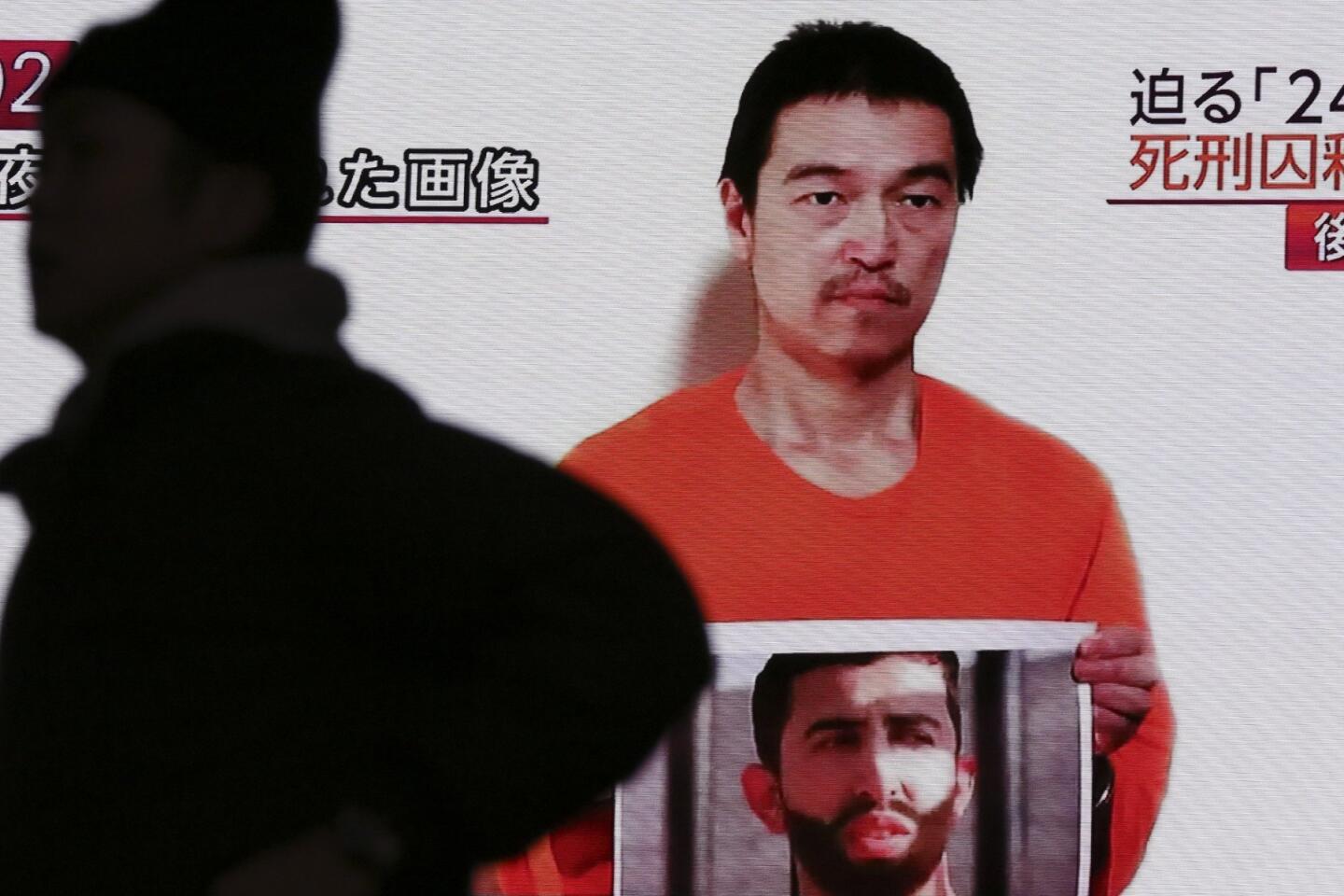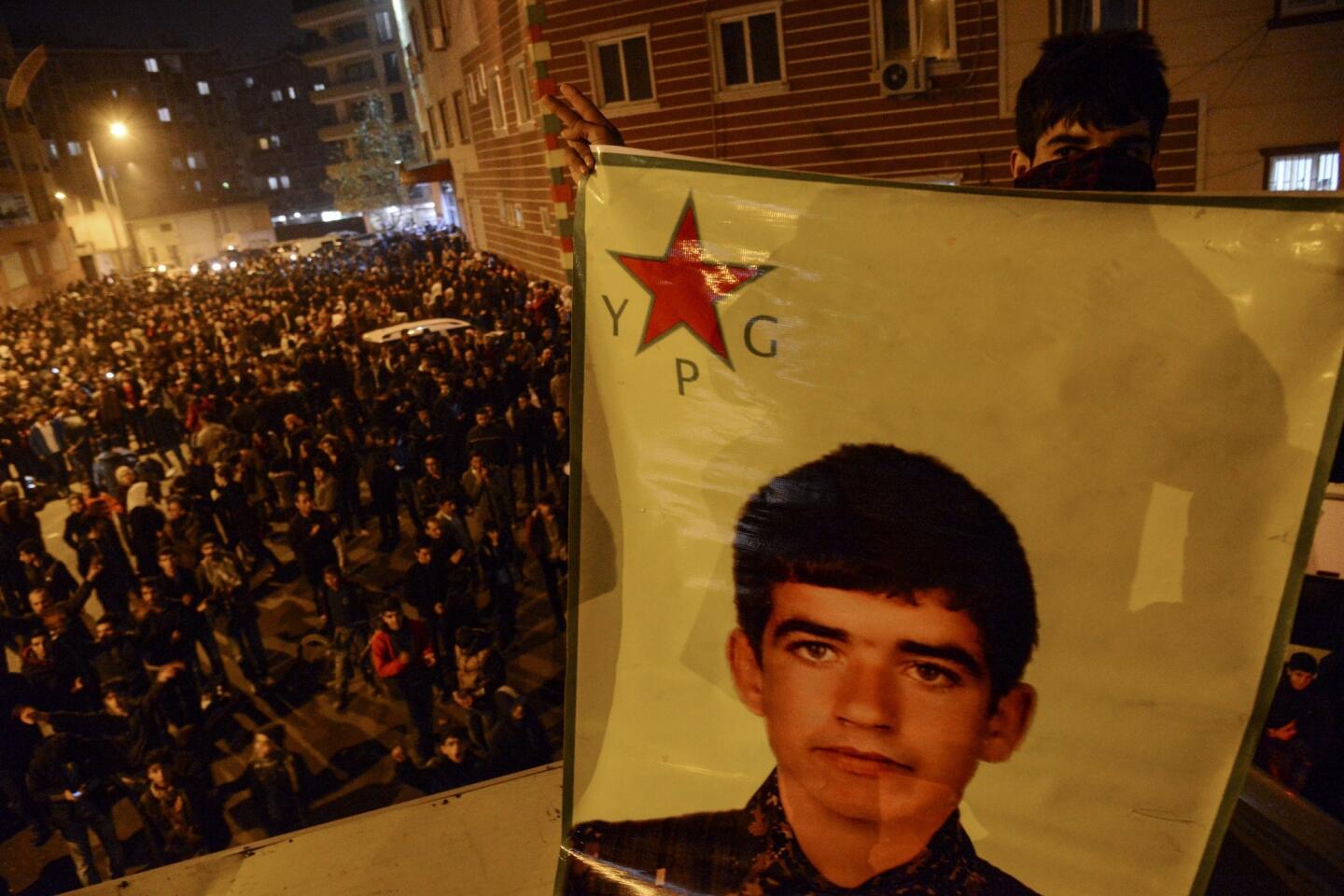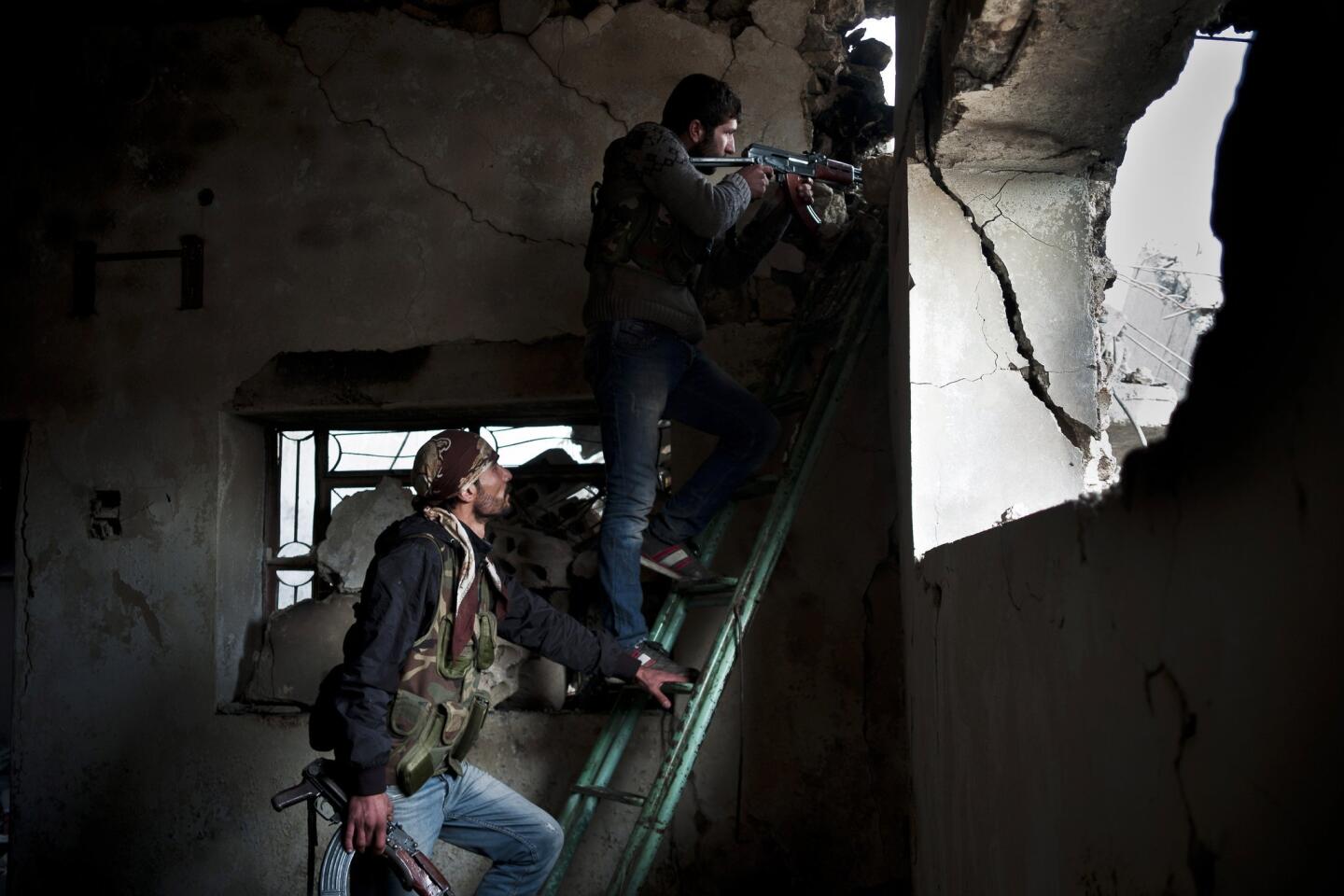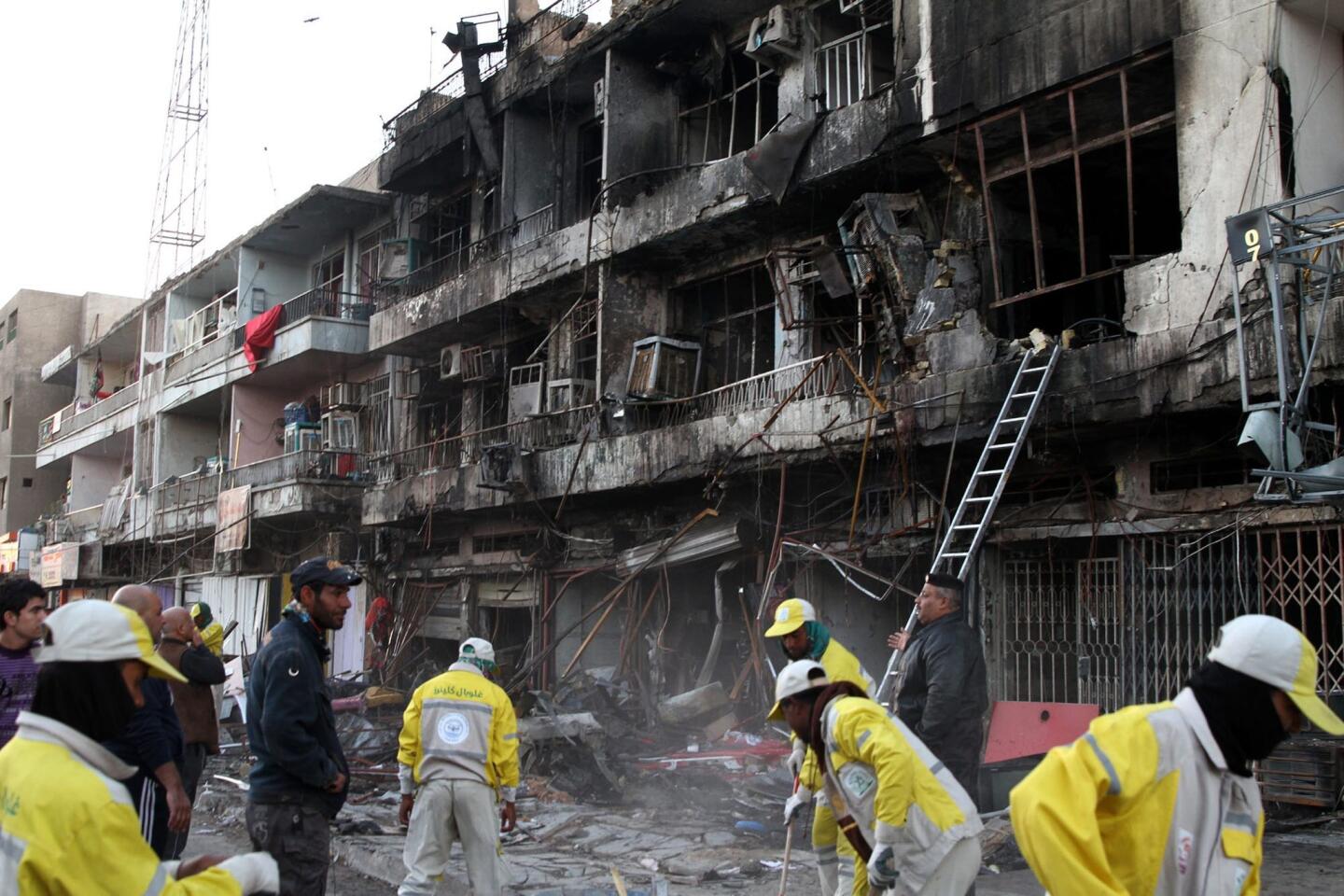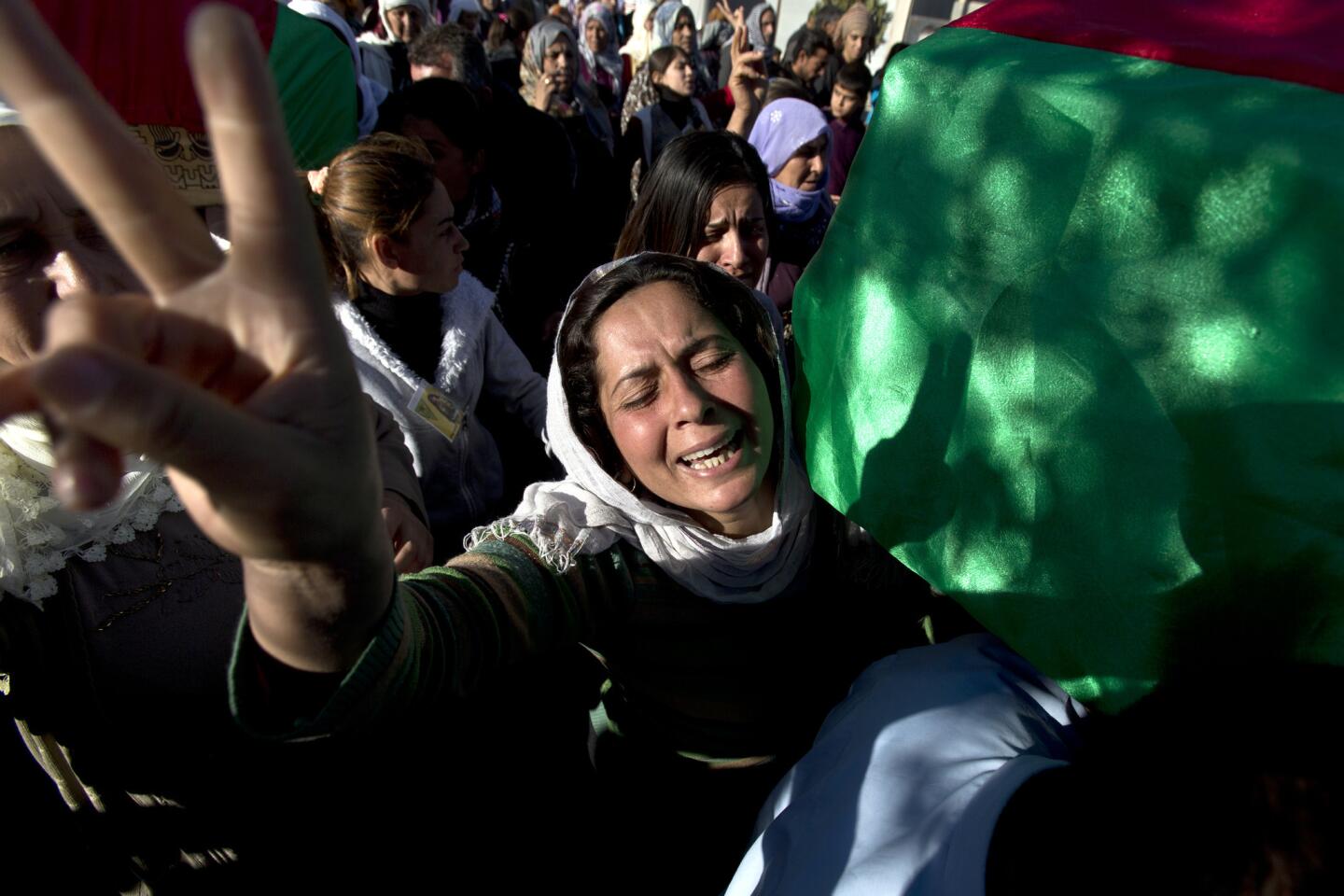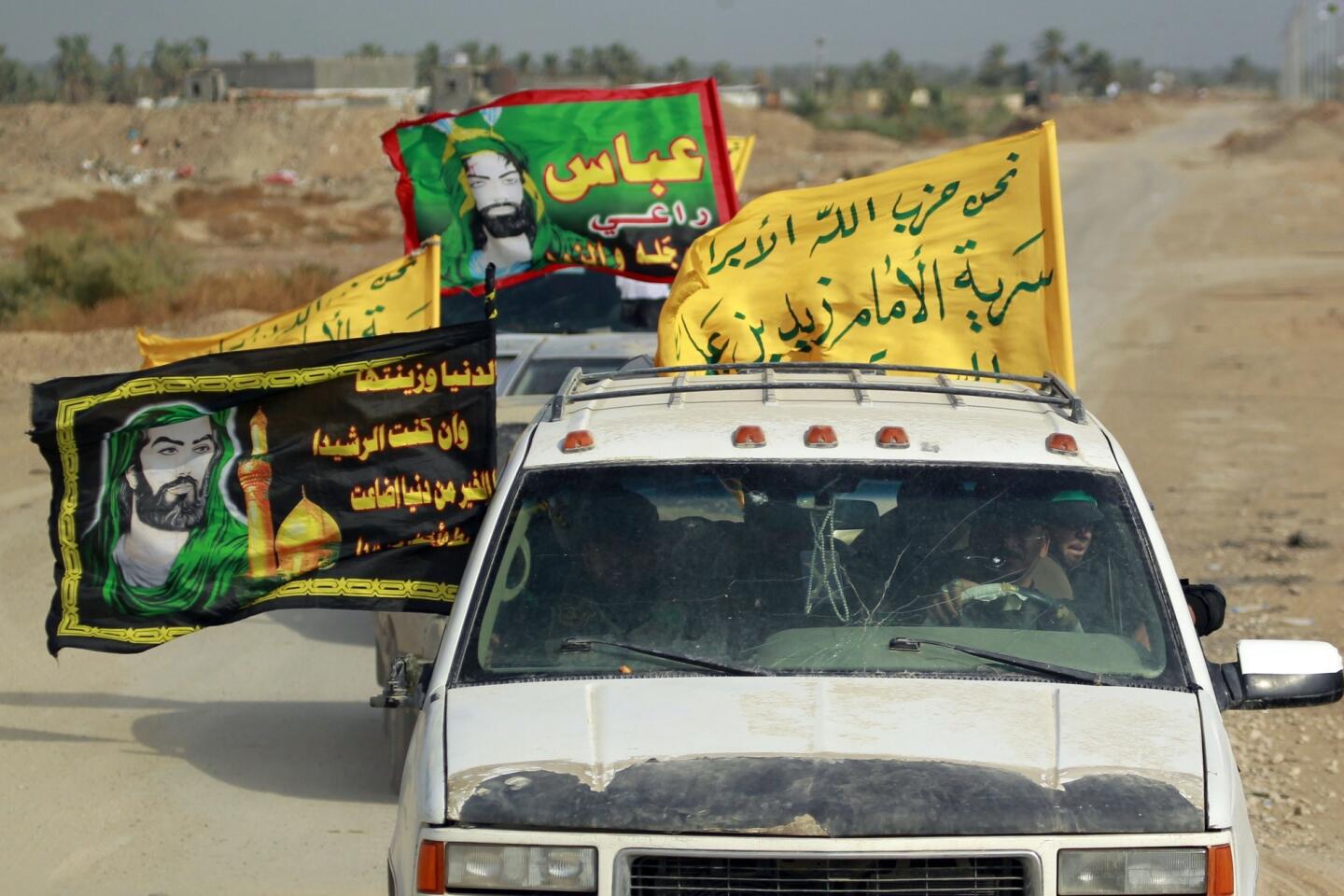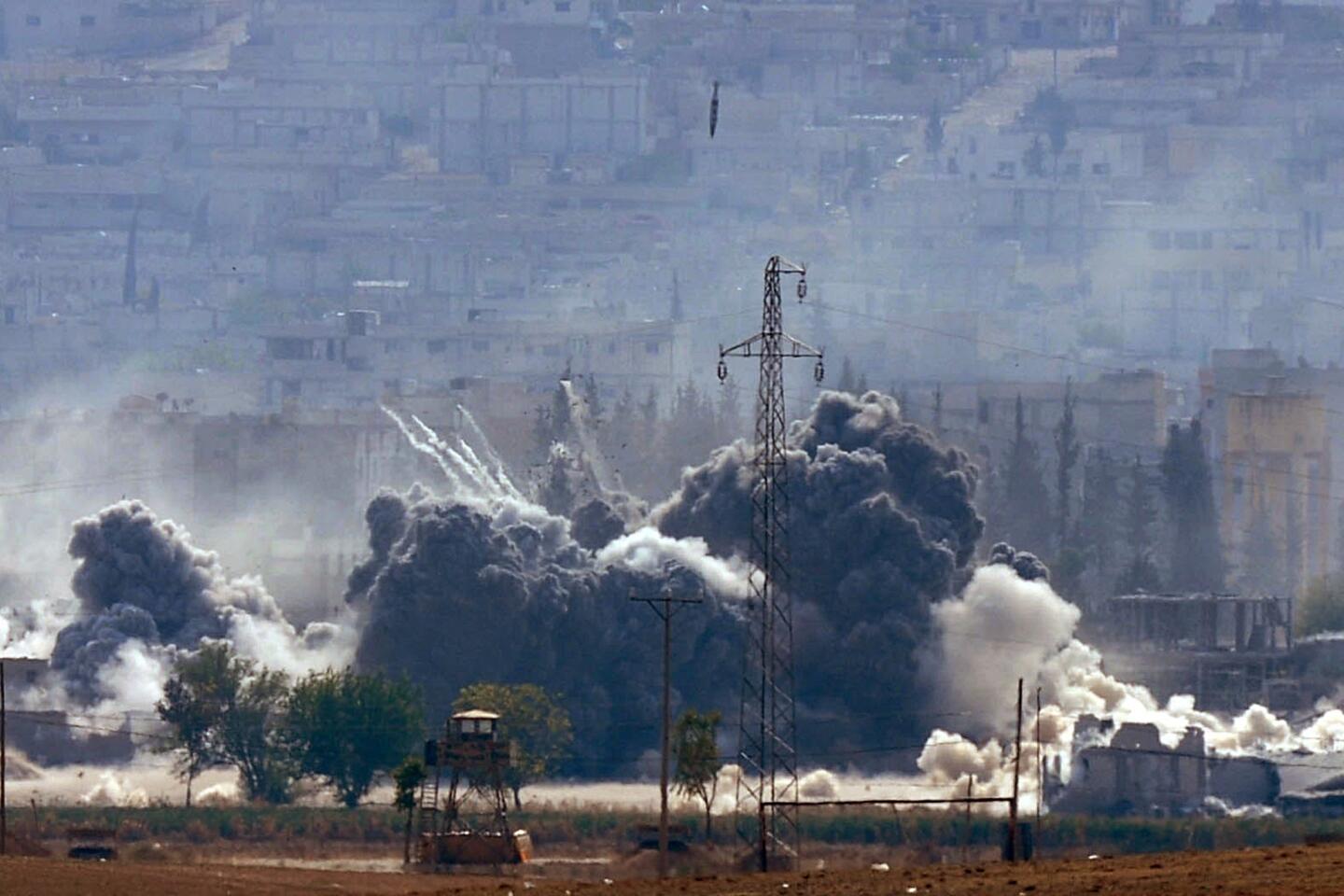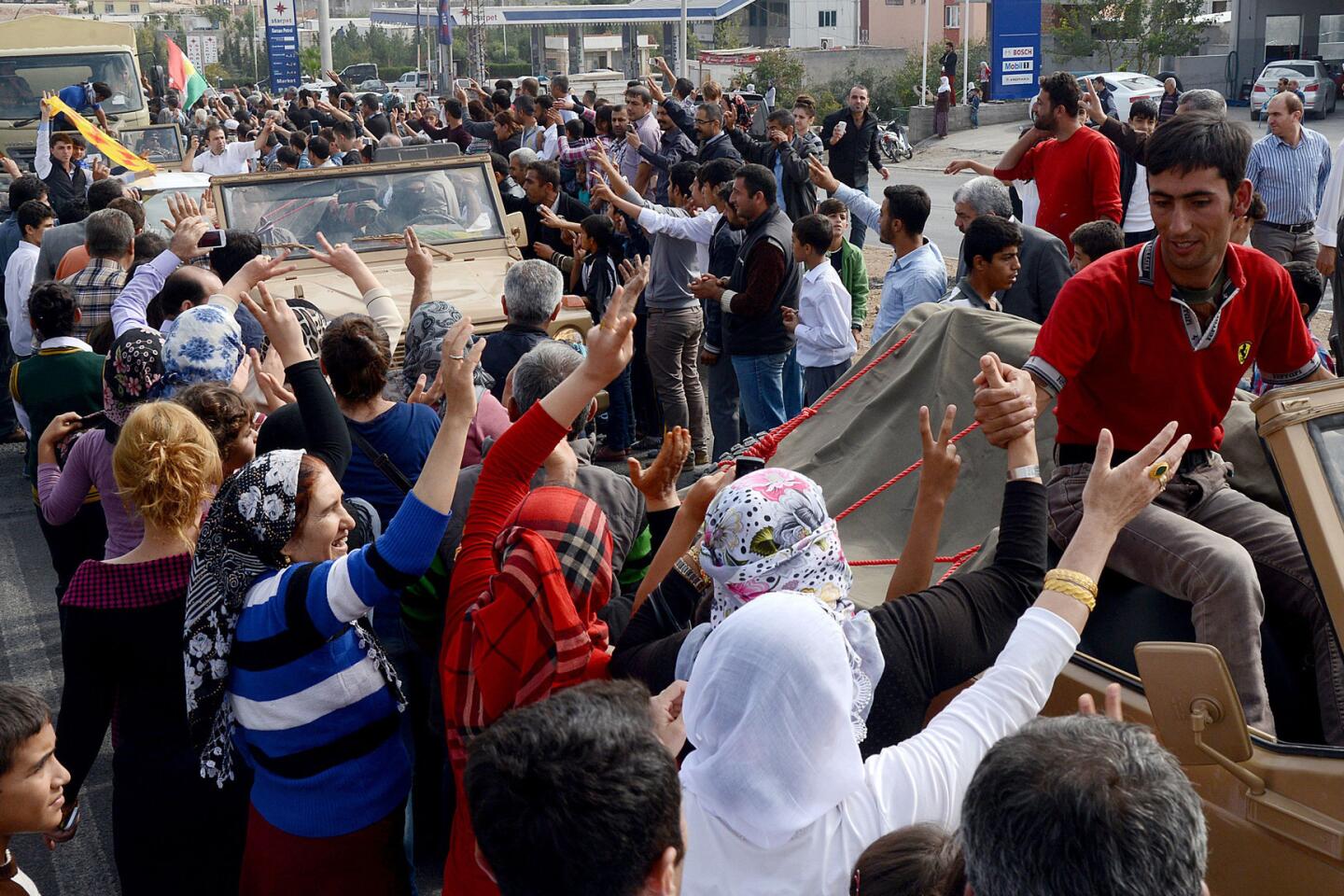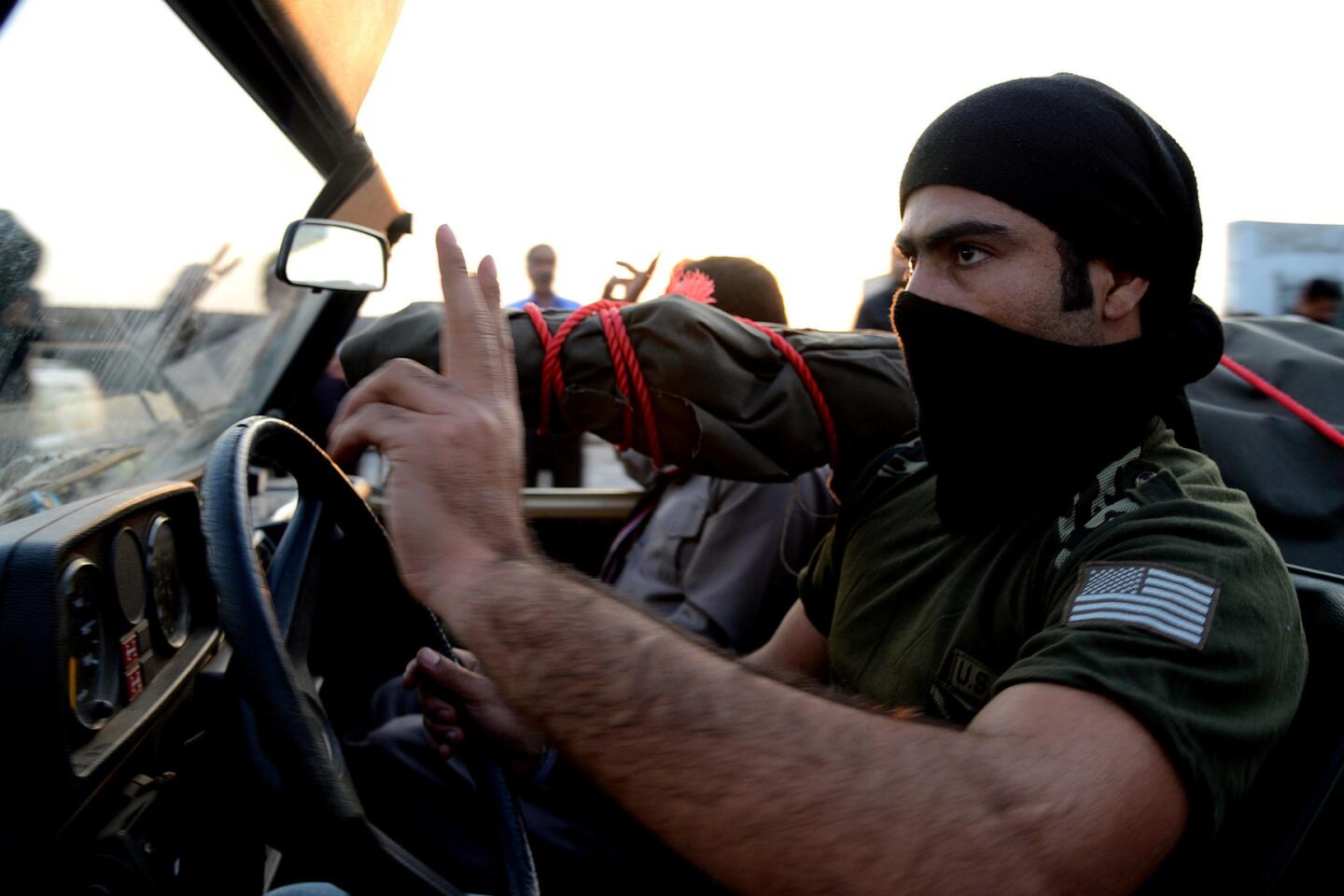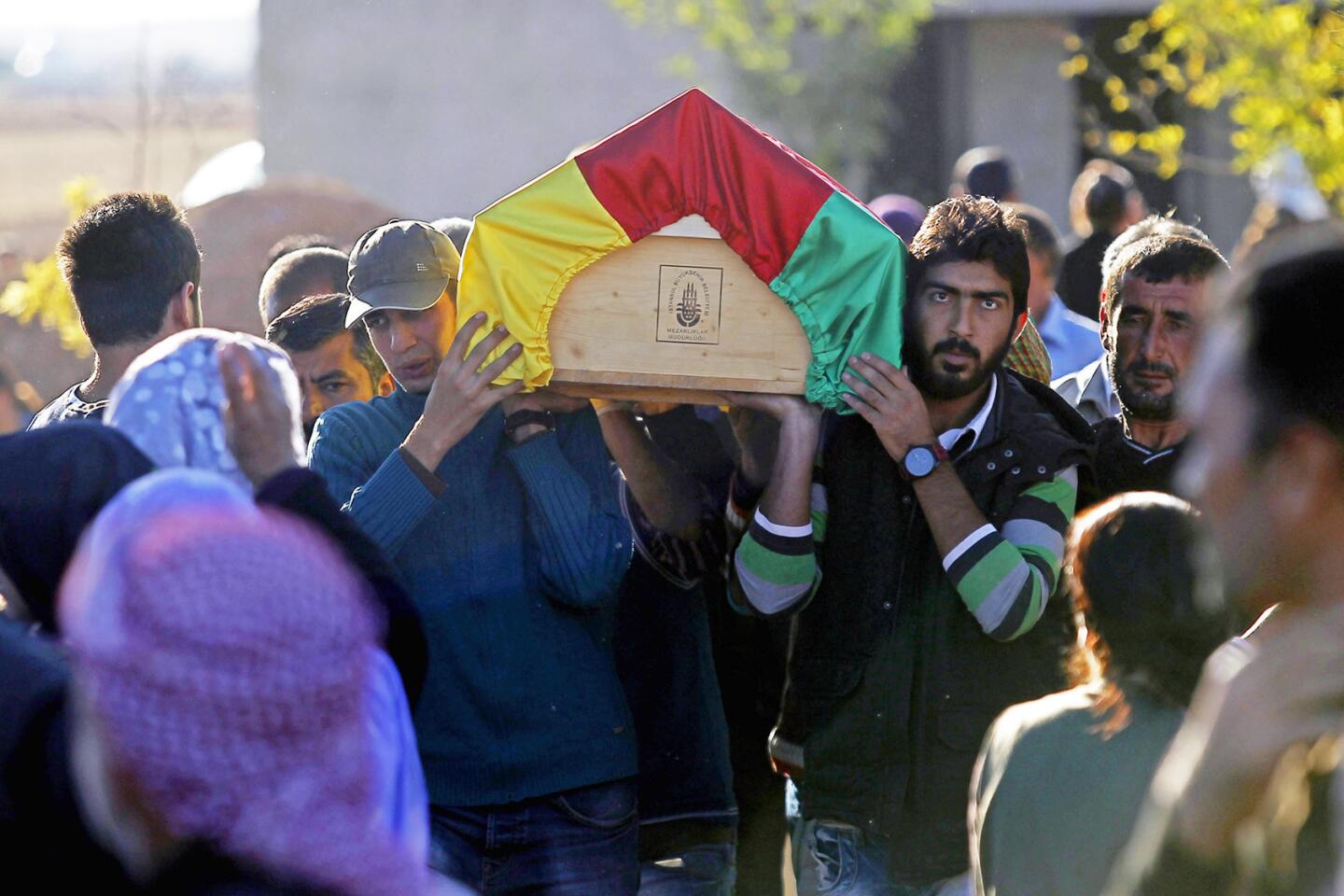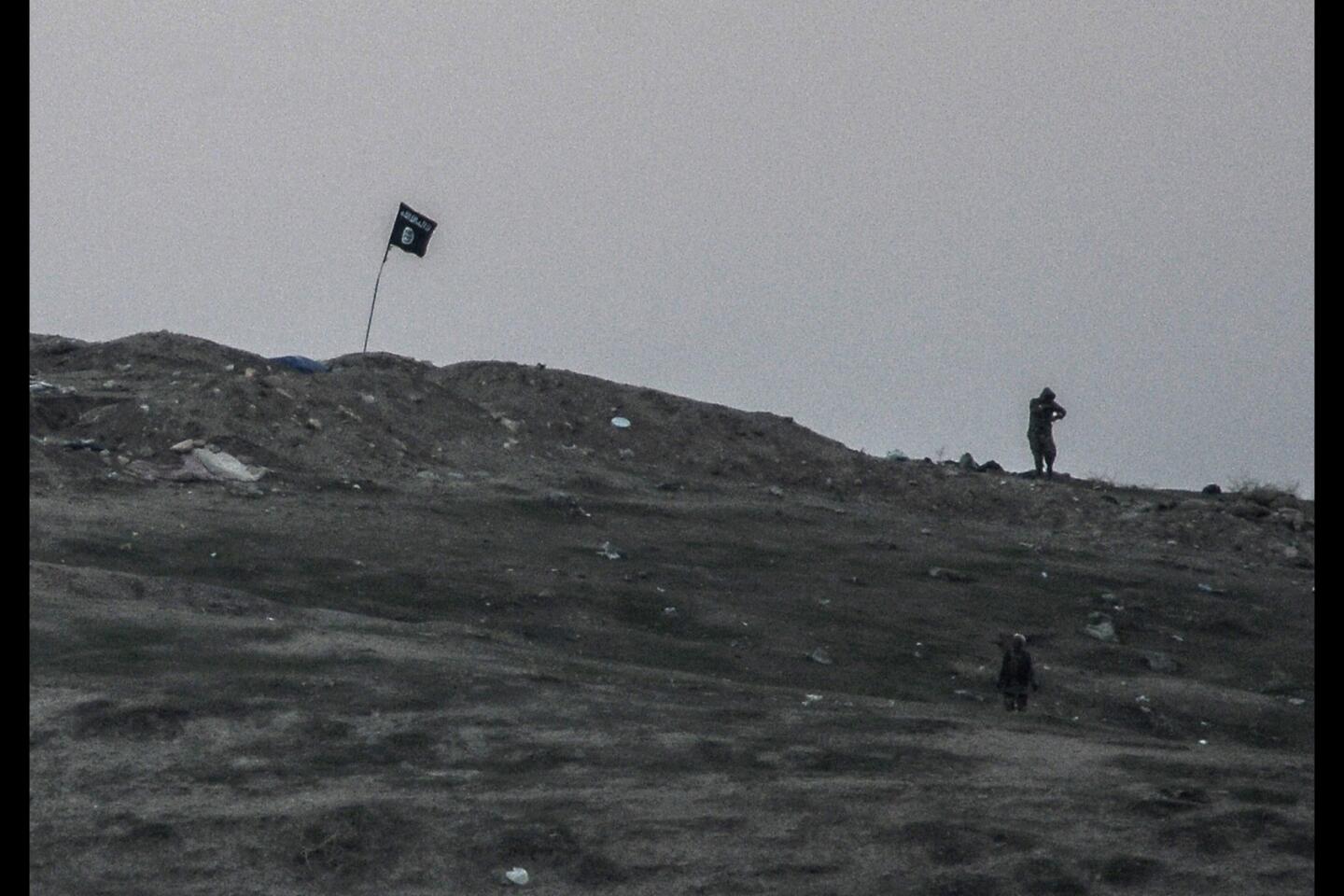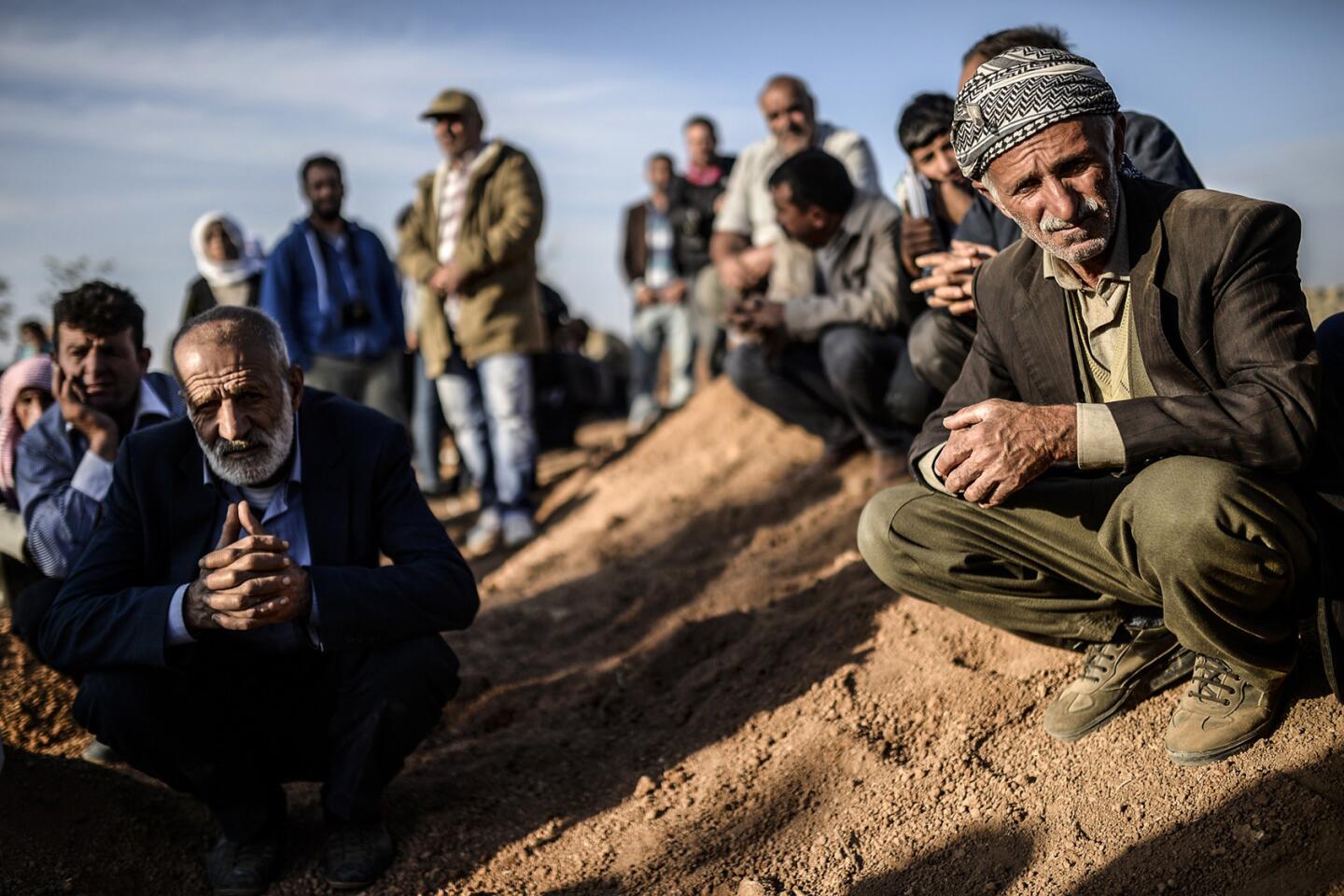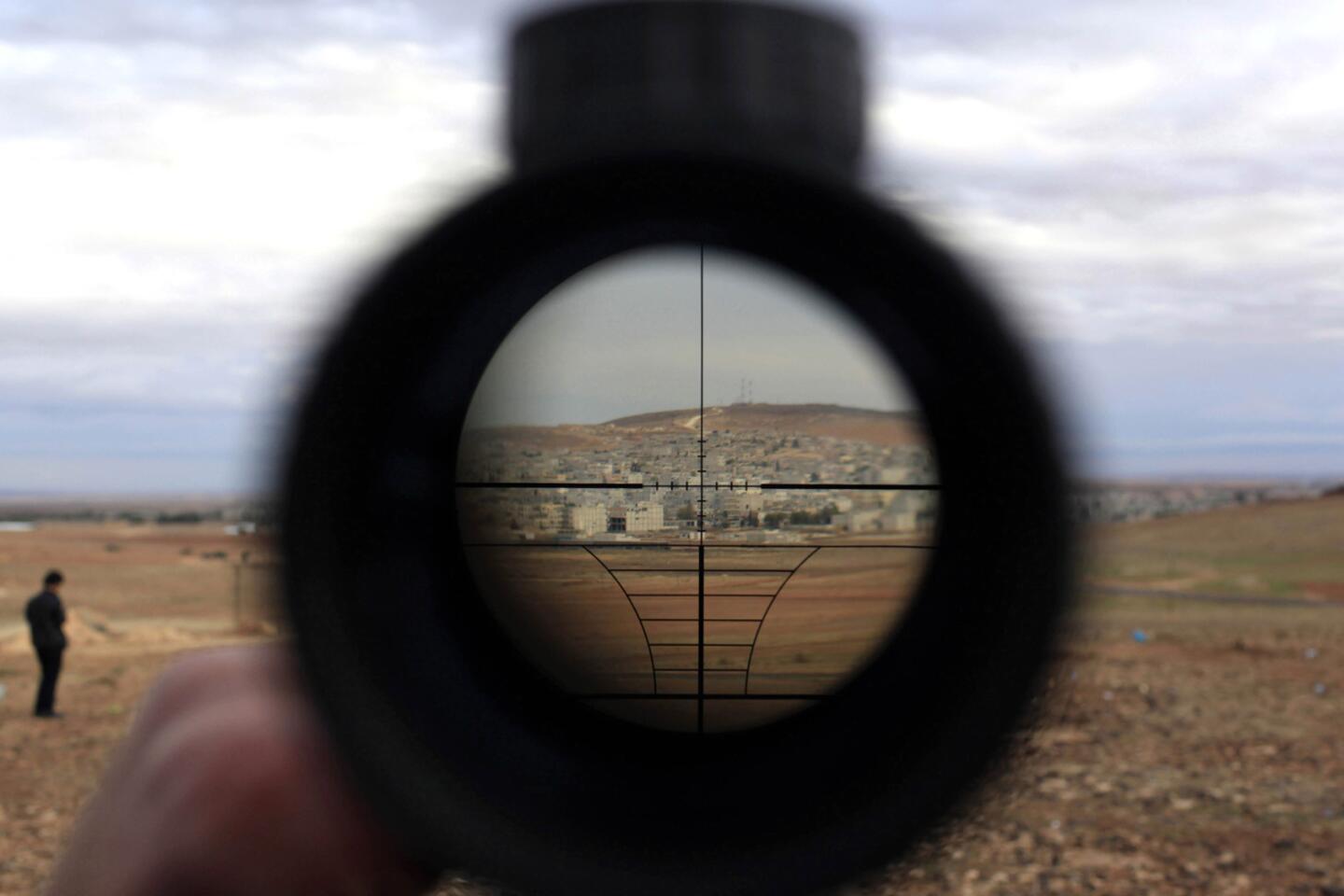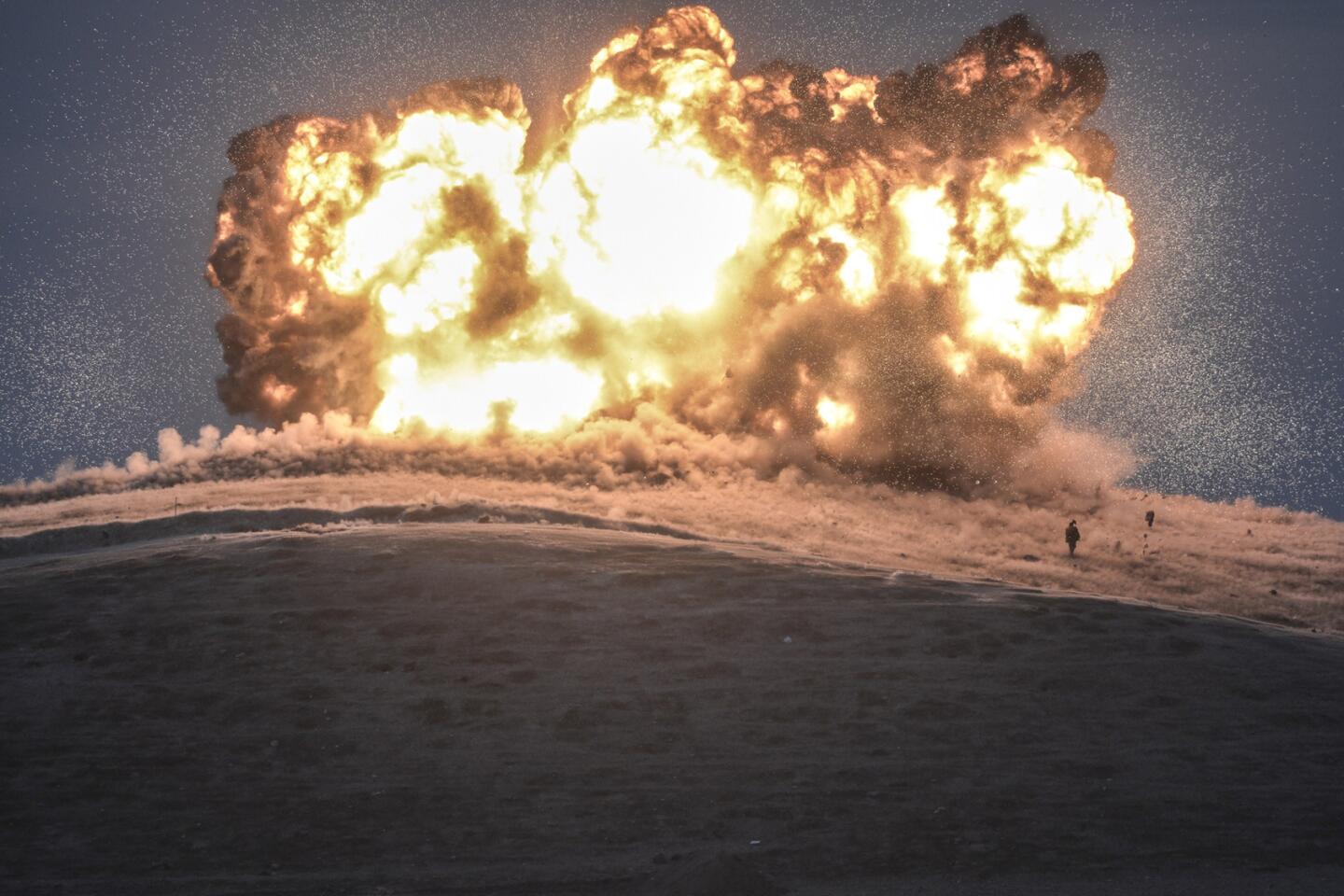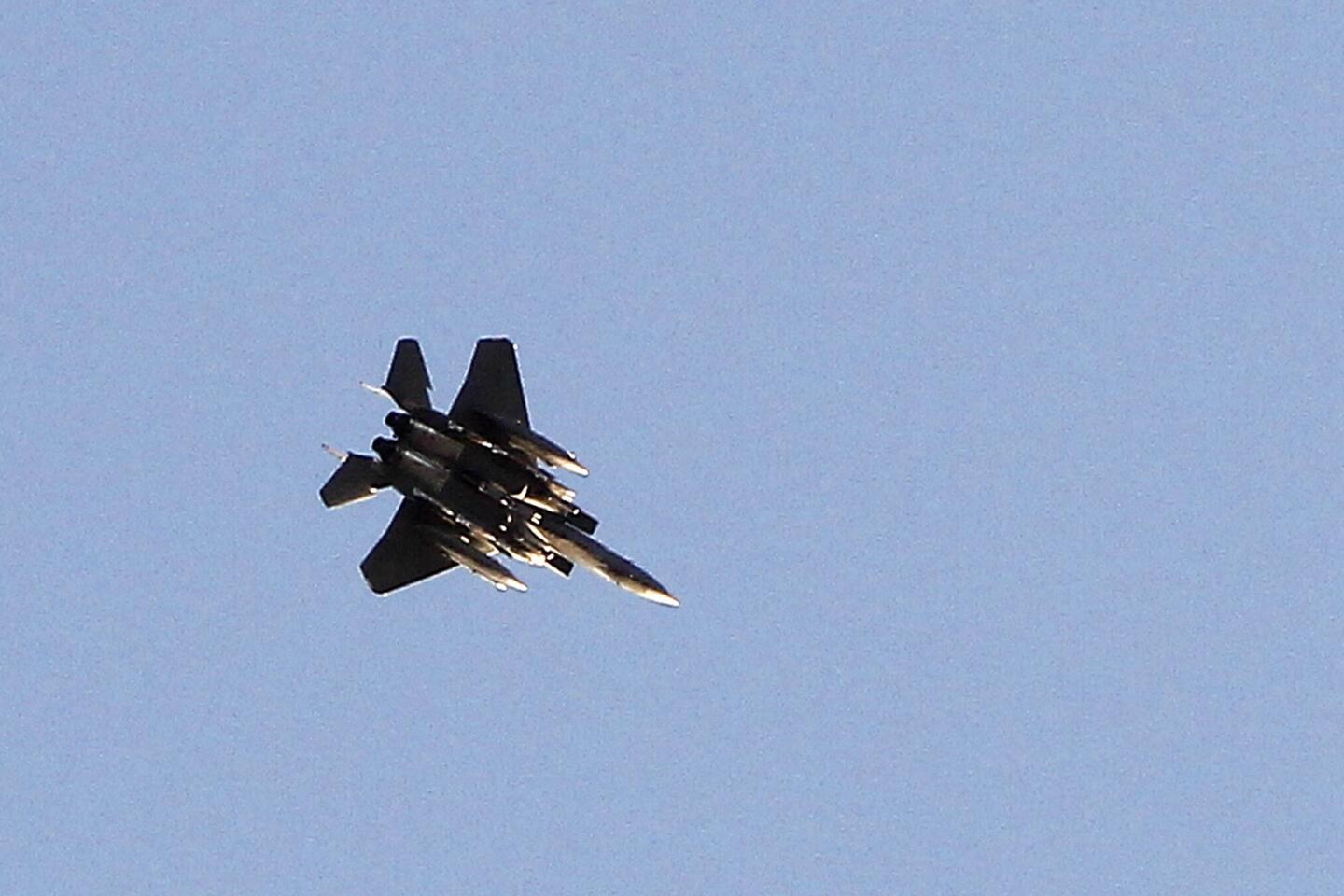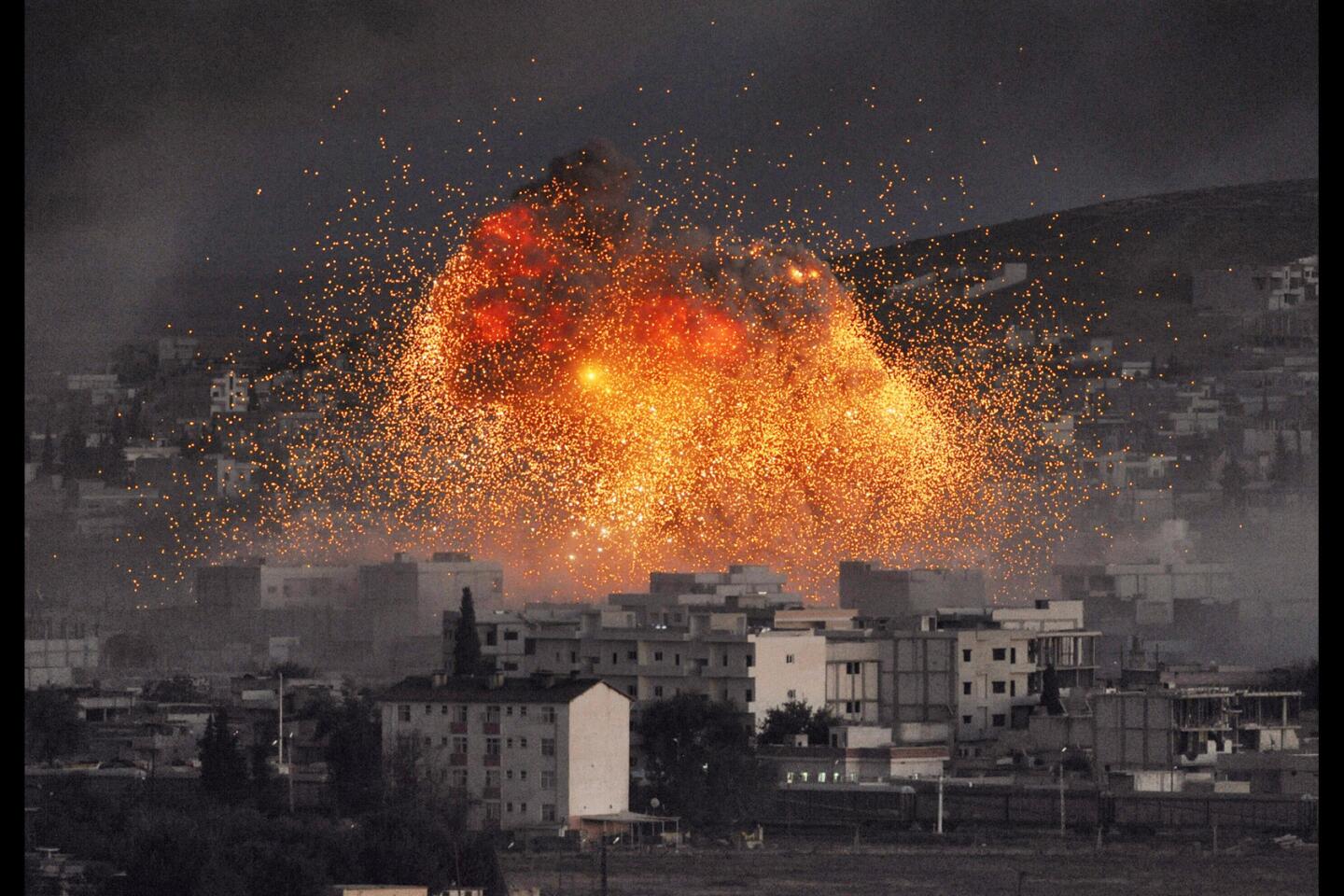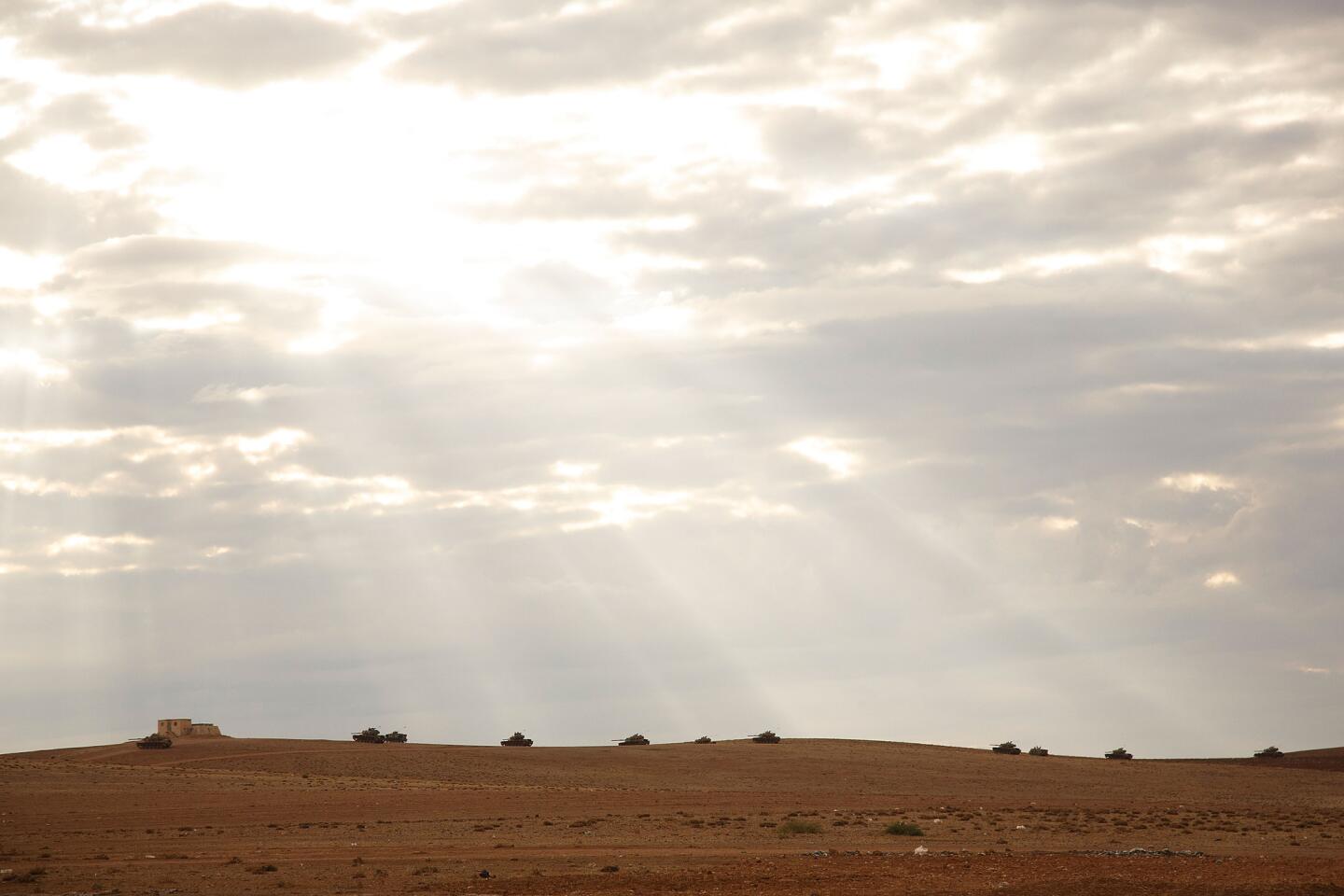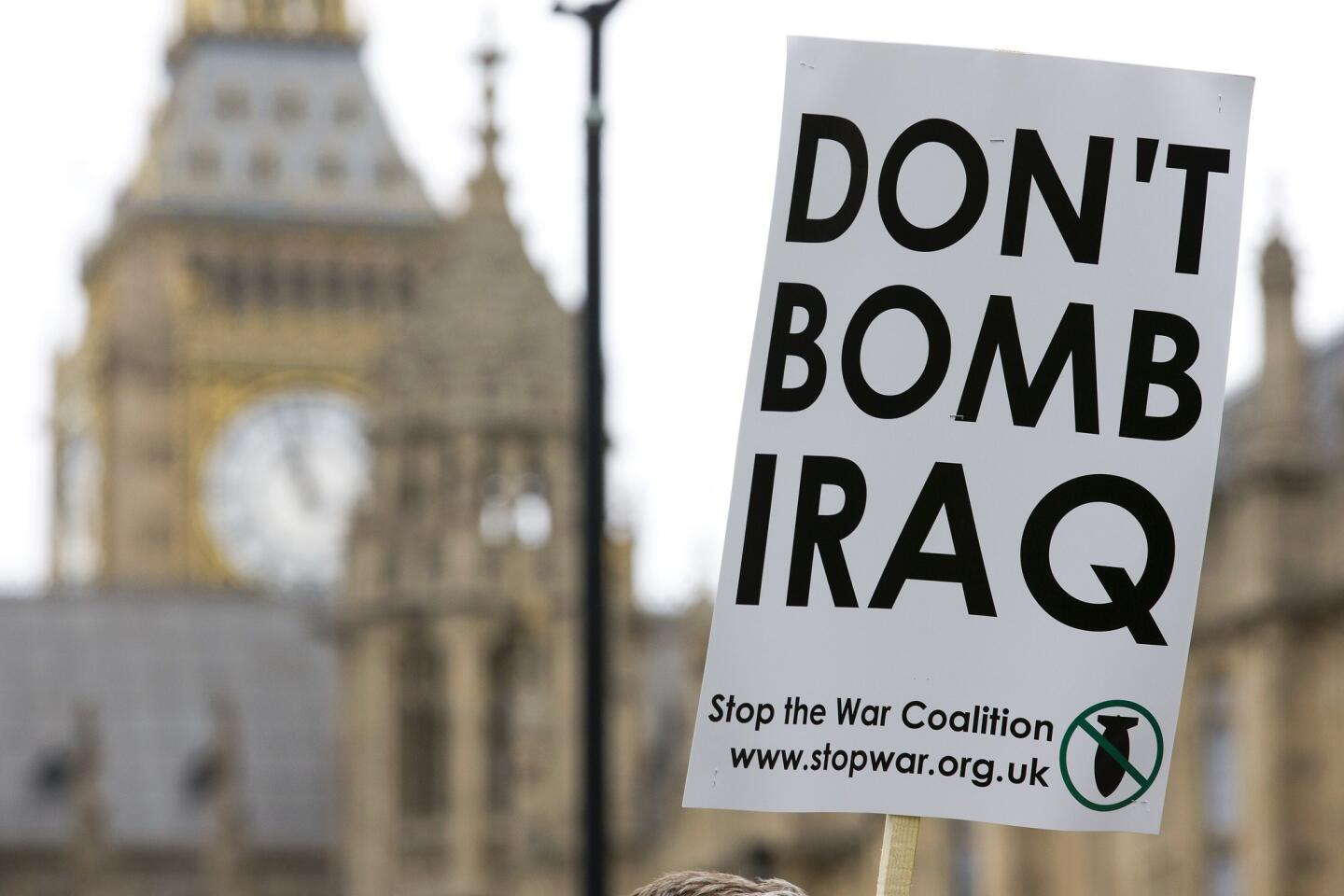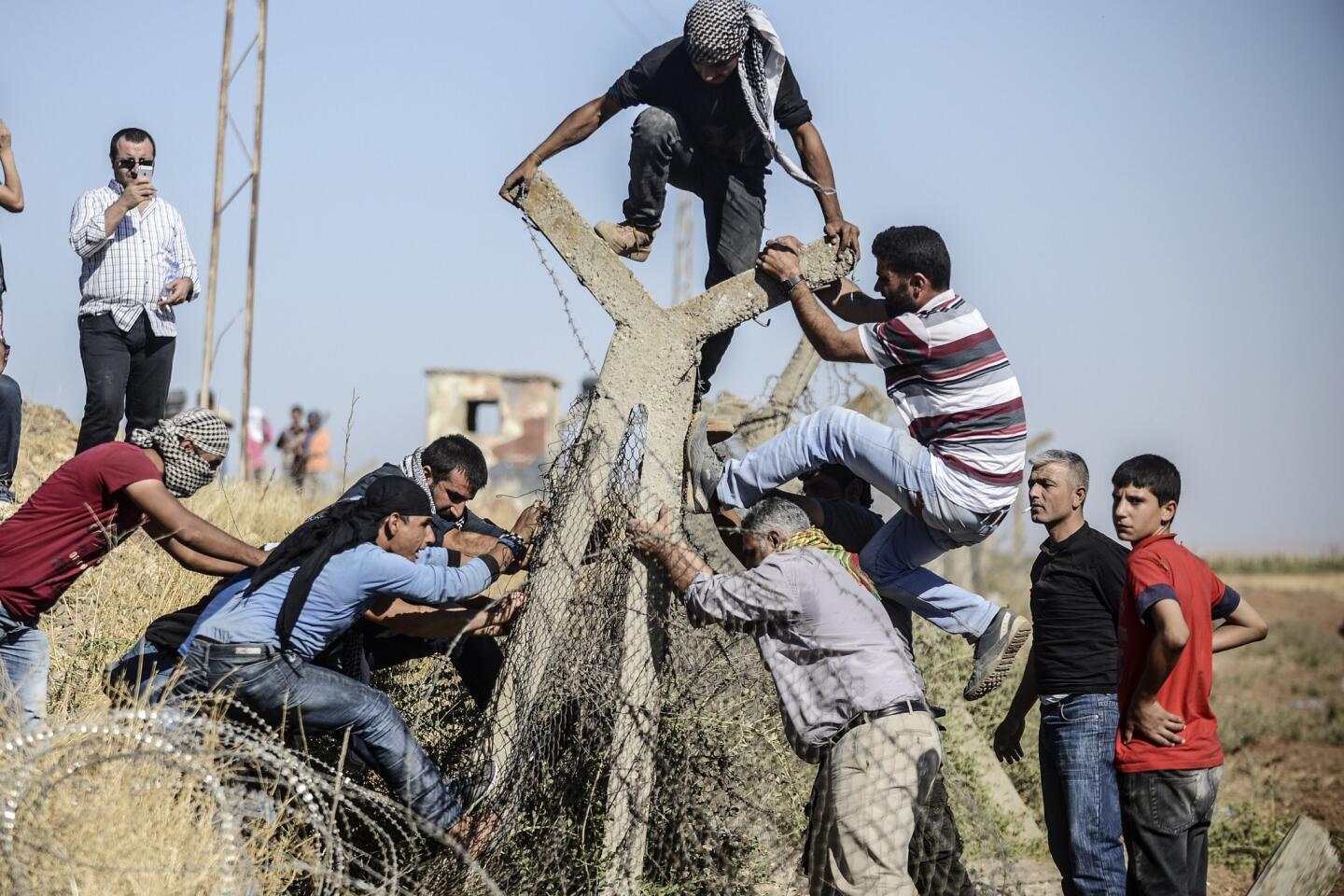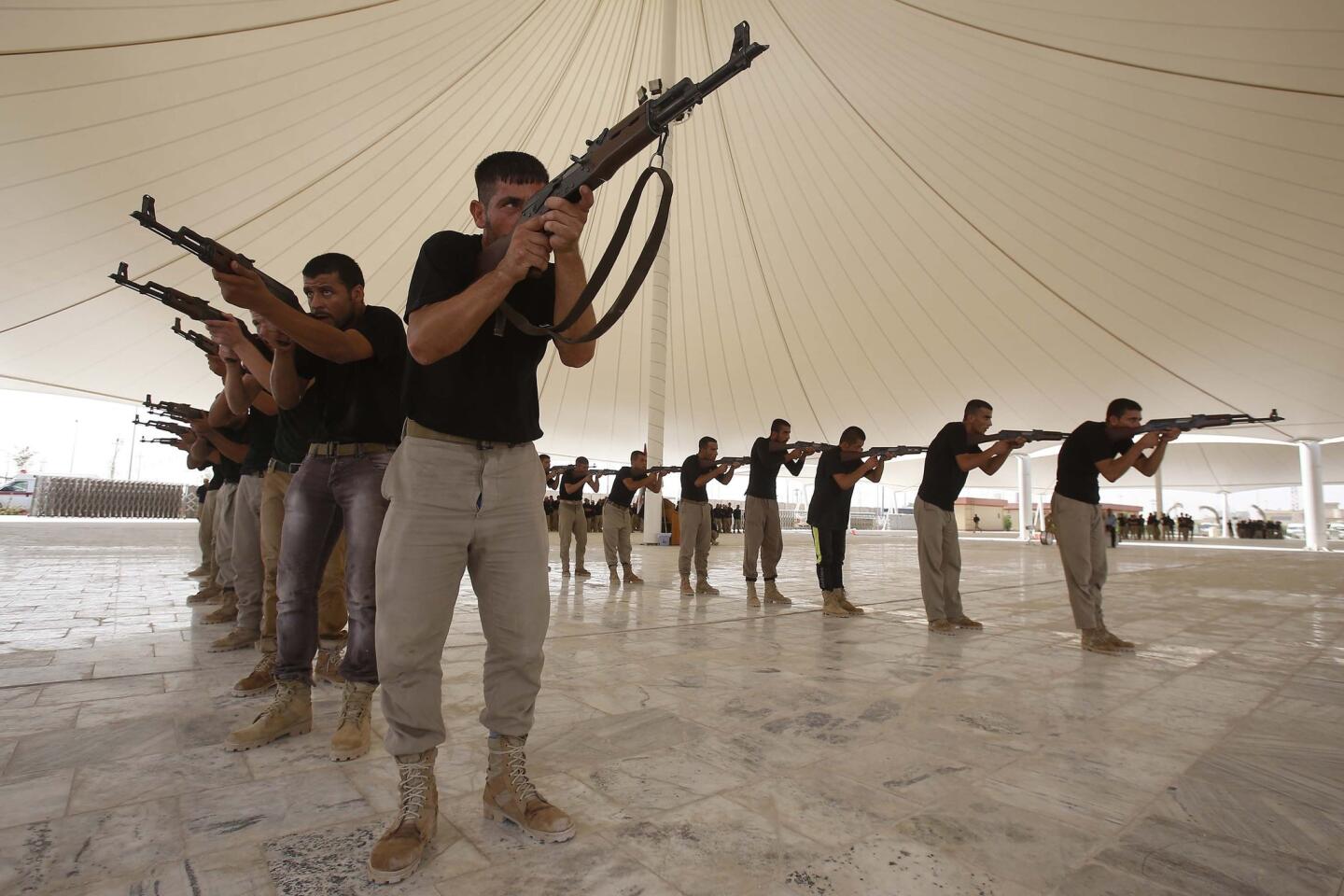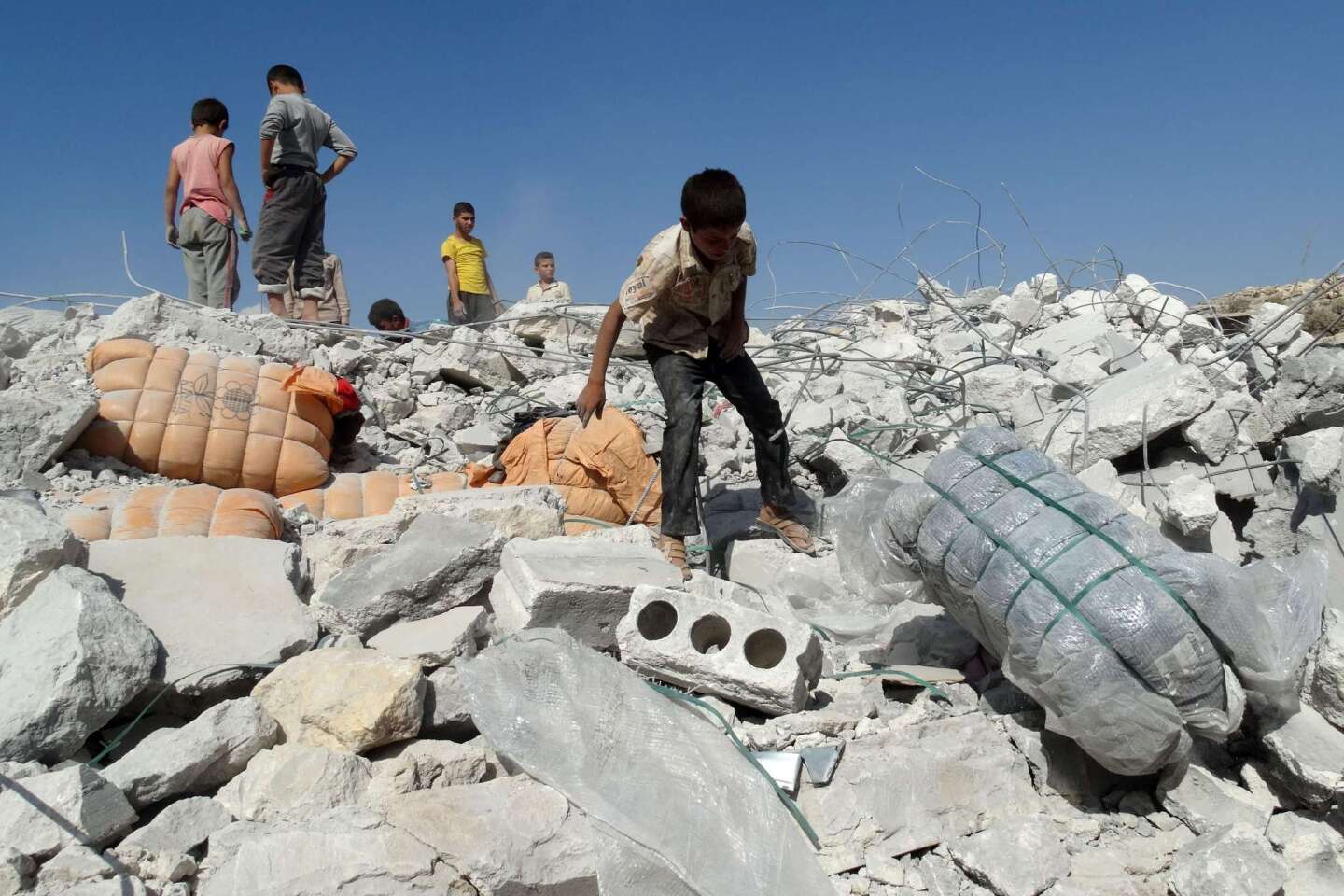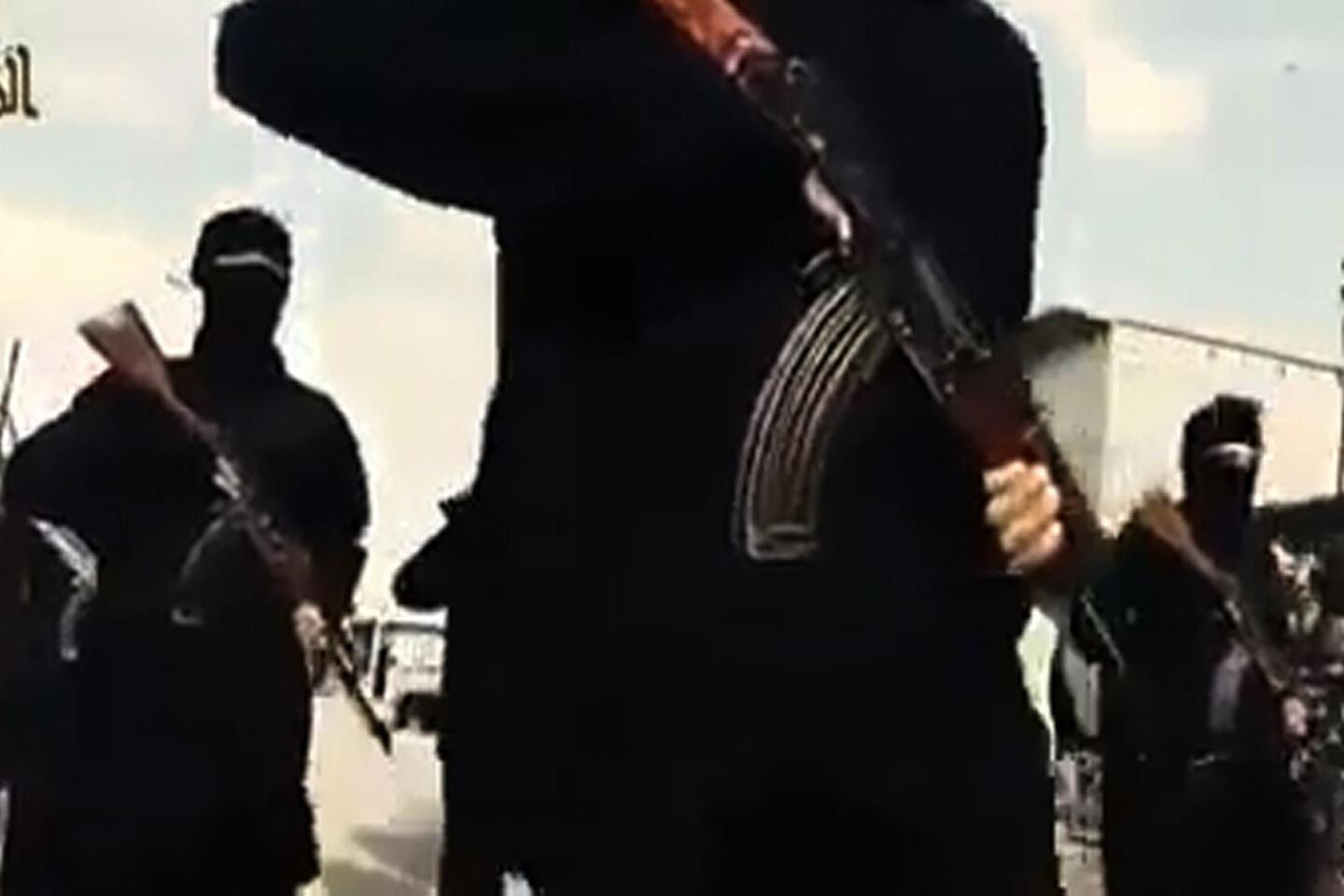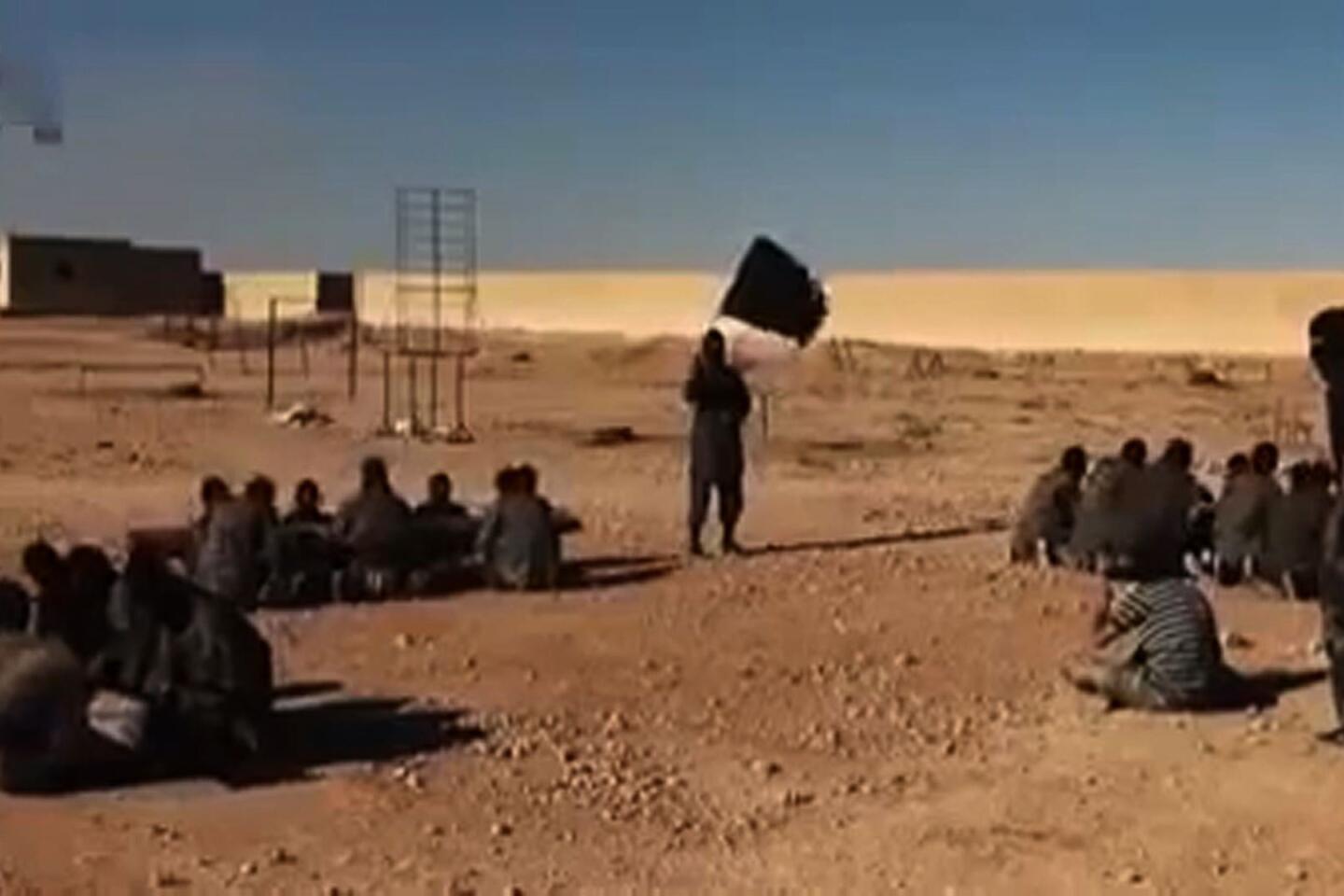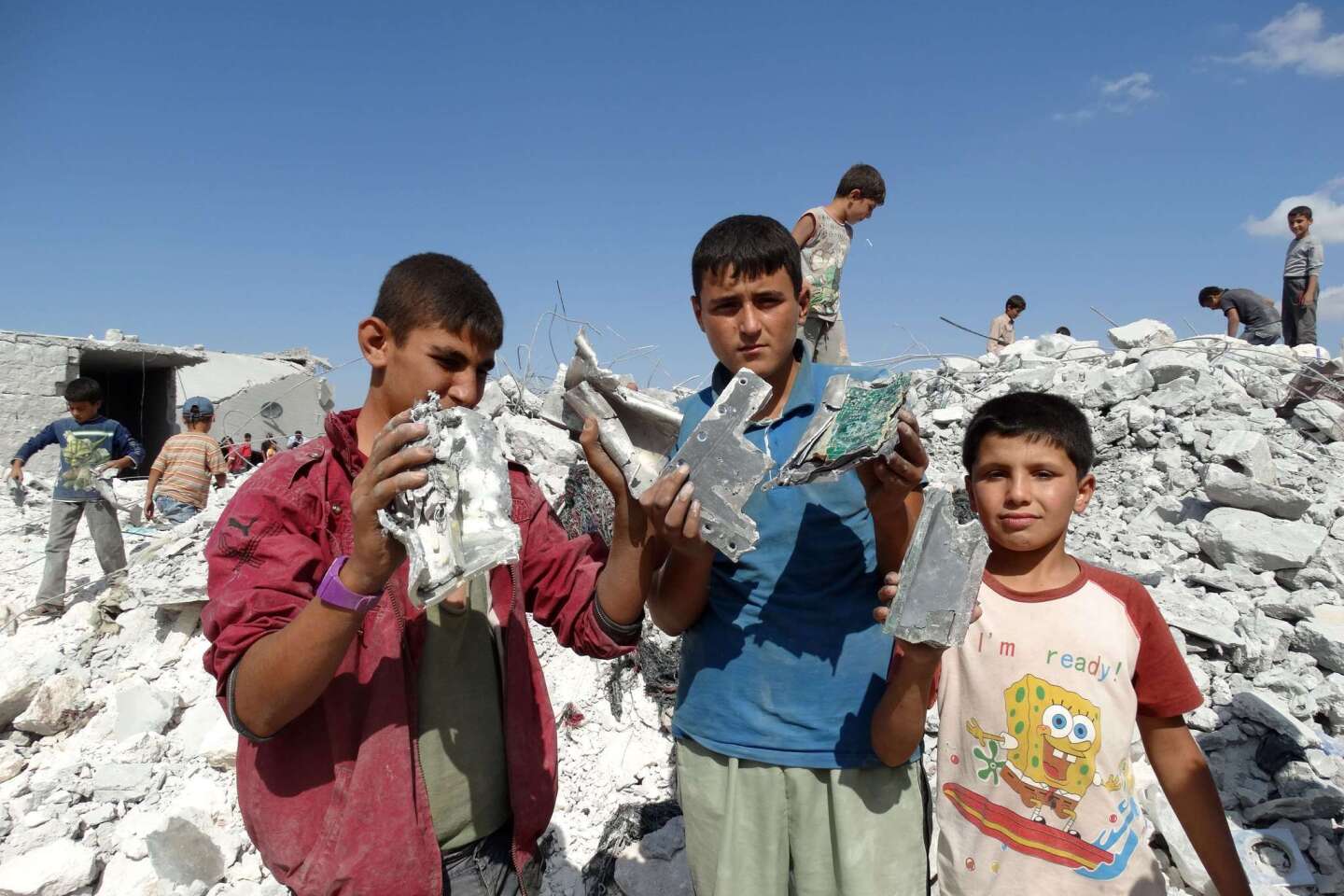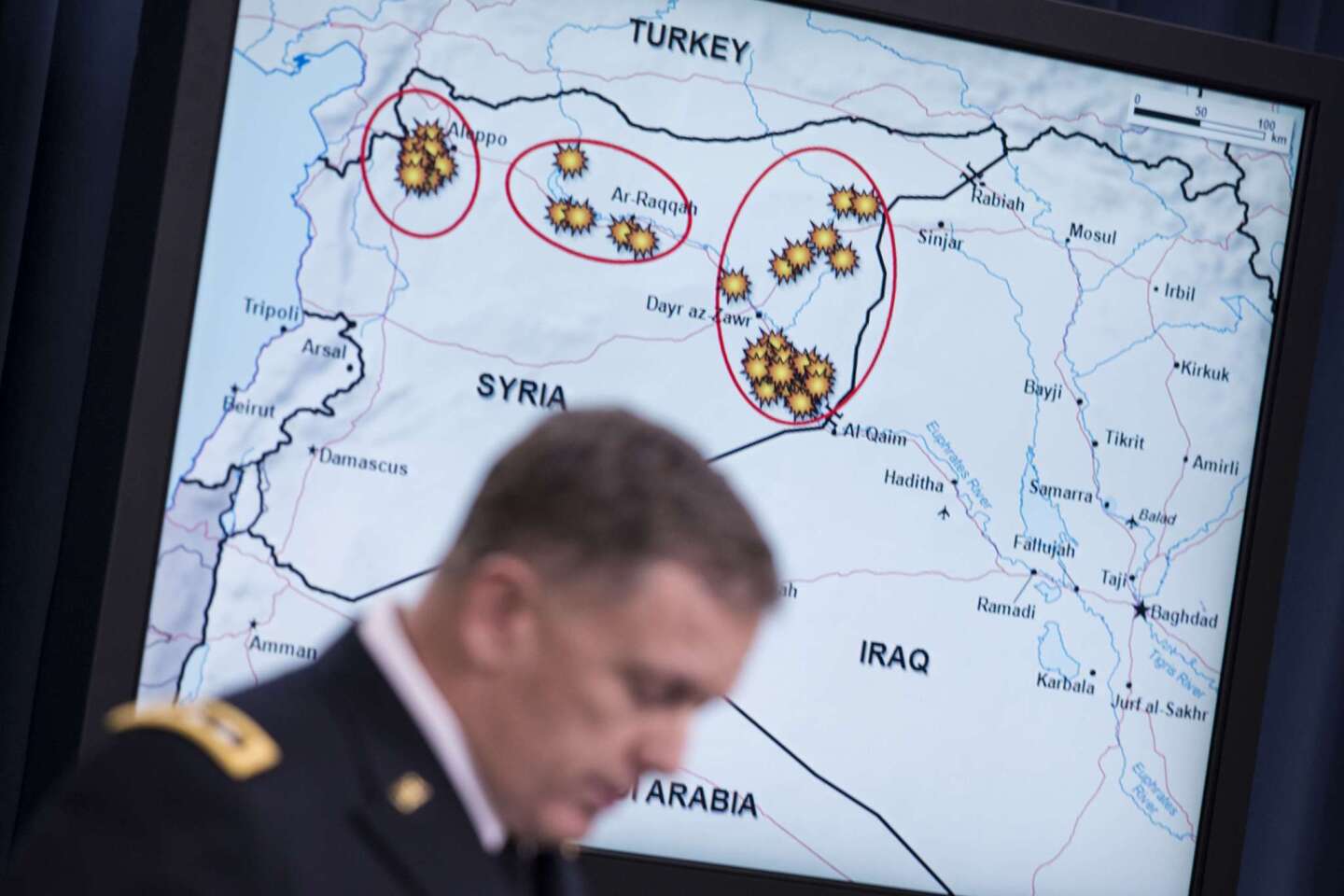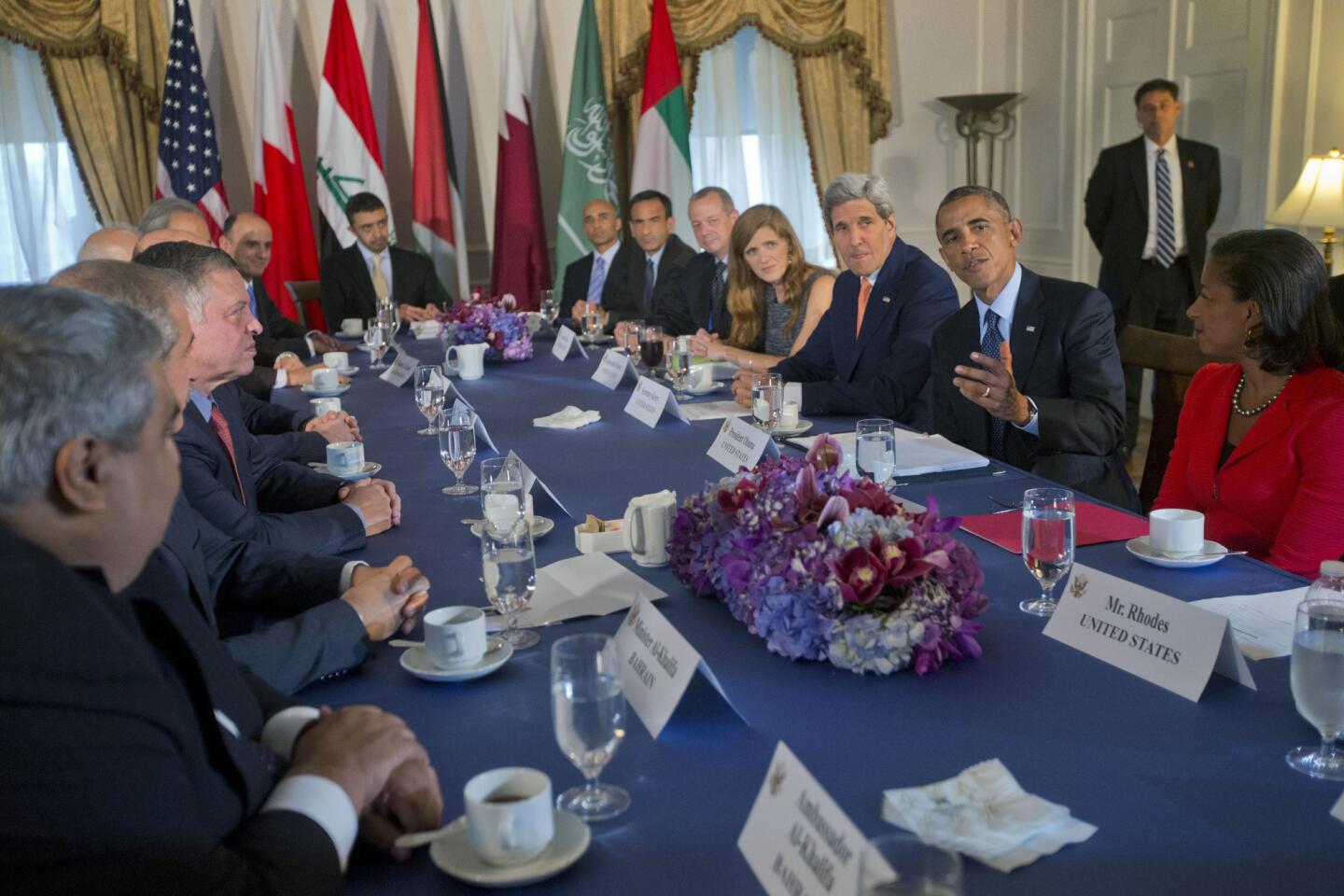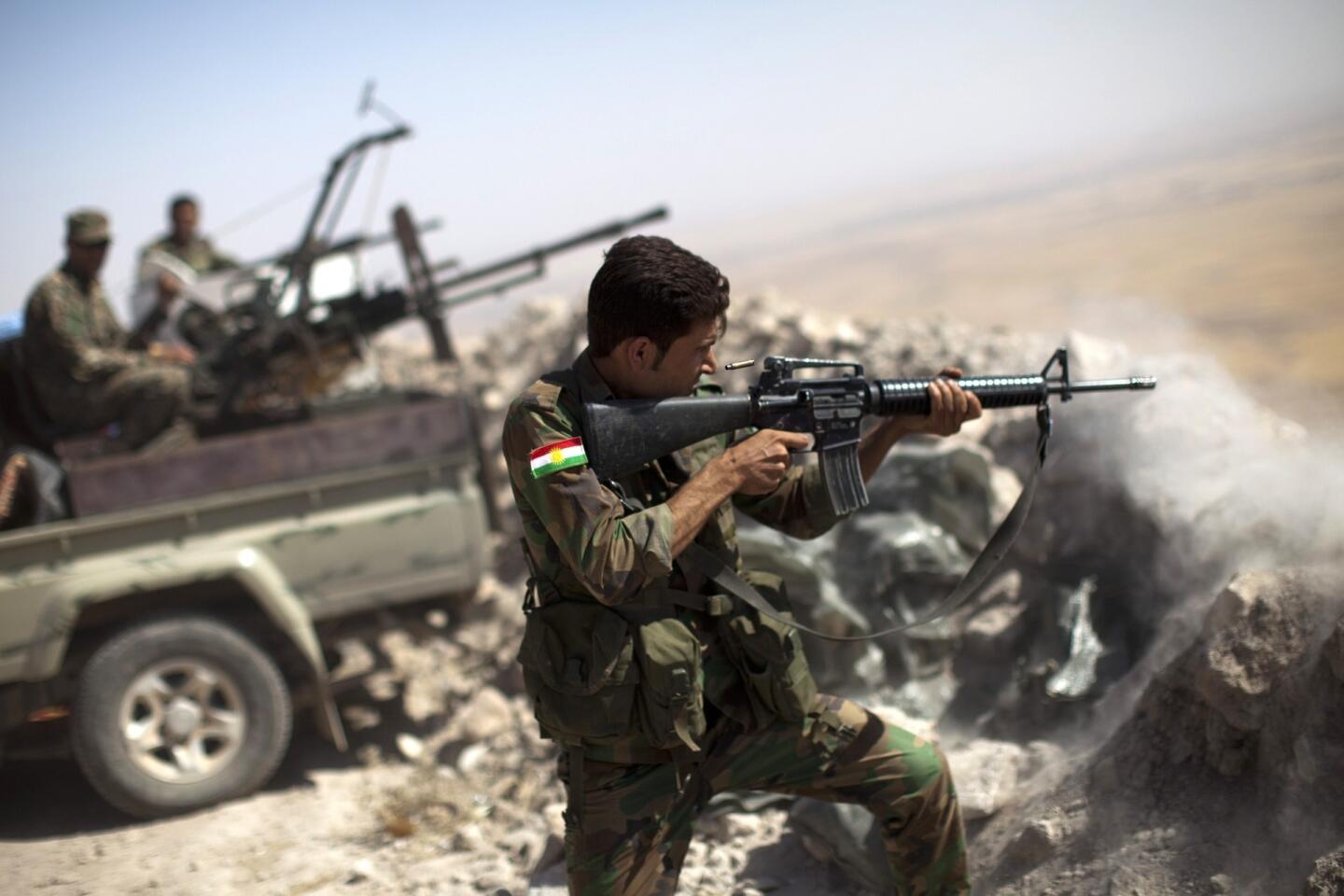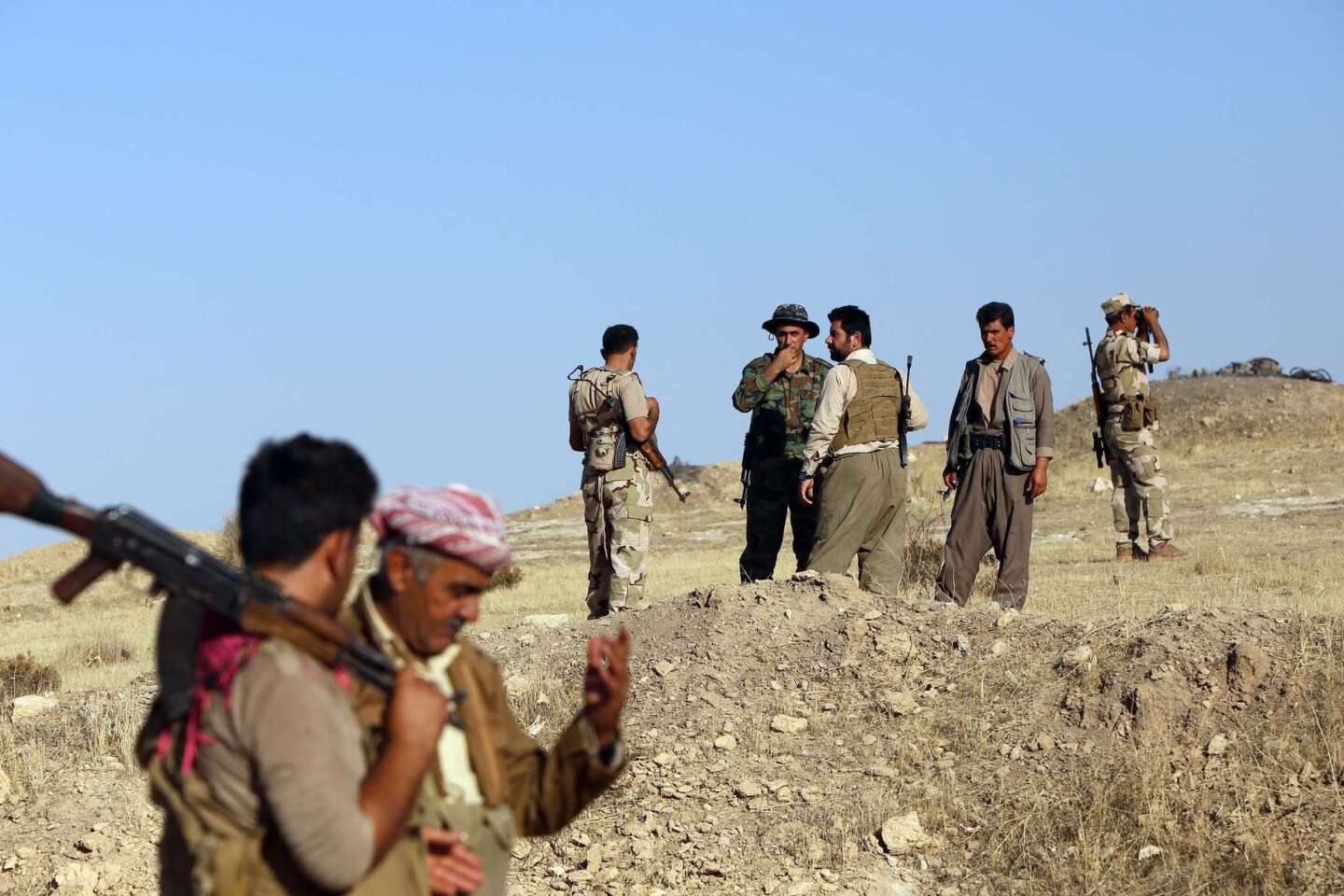Kurdish fighters in Syria near victory in battle with Islamic State
- Share via
Reporting from Beirut — Kurdish fighters in the Syrian border town of Kobani appeared poised Monday to deal a decisive defeat to Islamic State militants after months of street clashes and U.S. aerial bombardment, signaling a major setback for the extremist group.
The U.S. Central Command confirmed that anti-Islamic State forces now control about 90% of Kobani. Centcom congratulated the “courageous fighters” who confronted Islamic State forces in the town, which is on the Syrian side of the border with Turkey.
“Anti-ISIL forces have fought aggressively with resilience and fortitude,” Centcom said in a statement, using an acronym for Islamic State. “While the fight against ISIL is far from over, ISIL’s failure in Kobani has denied them one of their strategic objectives.”
Retaking control of Kobani would be a significant victory both for Kurdish forces and the Obama administration, which has unleashed a torrent of air strikes targeting Islamic State in the Kobani area as part of its strategy to “degrade and ultimately destroy” the Al Qaeda breakaway faction.
Ultimately, Kobani’s significance is more symbolic than strategic. Islamic State forces still hold sway over a vast area of Syria and neighboring Iraq -- and managed to sustain months of U.S. bombing before pulling back from Kobani. The militants also control border crossings leading to Turkey to the east and west of Kobani.
But the apparent breakthrough shows how U.S. air power, combined with a determined allied force on the ground, can successfully confront Islamic State.
The military watched with surprise as Islamic State continued sending hundreds of fighters, vehicles and weapons to Kobani, which was of no critical strategic importance to the overall fight but had become something of a public relations fight.
“Essentially, they said, ‘This is where we are going to make a stand’ and flooded the region with fighters,” said Col. Edward Sholtis, a spokesman for U.S. Air Force Central Command, in charge of air operations in the battle against the Islamic State.
Kobani, a one-time railroad terminus little known outside the region, emerged as a global rallying cry for all sides in a conflict pitting the U.S. and its allies against Islamic State. Last October, Islamic State forces appeared on the verge of overrunning the town, adding to their roster of victories.
On Monday, however, various activists indicated that Kurdish forces had recaptured virtually the entire town after four months of battle, often urban combat in debris-strewn streets and alleys where both sides deployed snipers.
“Kobani has no more Daesh,” said one pro-Kurdish official reached by telephone in Kobani, using the Arab name for Islamic State, also known as ISIS. “It’s been totally cleansed of Daesh,” added the official, who declined to give his name because he was not authorized to speak publicly.
The Kurdish Rudaw news site quoted a Kurdish peshmerga commander on the scene saying that militants only remained in one small village attached to the city.
“Retaking that village is easy and today all of Kobani will be free,” the peshmerga commander, Muslih Zebari, told Rudaw.
In previous retreats, Islamic State forces have left behind booby-trapped homes and roadside bombs in an effort to slow advancing enemy forces.
There were reports of spontaneous celebrations in Kurdish areas of Syria and Turkey as word spread about the apparent Kurdish victory in Kobani, known as Ayn-al-Arab in Syria. Kobani became a major cause among Kurds in the region and in the Kurdish diaspora.
Four months of fighting have left the town along the Turkish border largely in ruins. The vast majority of Kobani’s 200,000 or so residents, mostly ethnic Kurds, fled months ago, most into Turkey. Many are now living in refugee camps.
There was no apparent letup in the aerial assault. U.S. Central Command said Monday that the U.S.-led coalition had conducted 17 more airstrikes near Kobani, targeting various Islamic State positions.
Bombers, fighter jets and drones with the U.S.-led coalition have relentlessly targeted Islamic State positions in and around Kobani since October, attacking the militants with more than 700 air strikes -- accounting for more than 70% of the almost 1,000 strikes to date on Syria. The barrage caused heavy losses and hindered Islamic State efforts to bring in reinforcements.
Television cameras stationed on the Turkish side of the border have broadcast now-signature images of giant plumes of smoke and debris rising into the sky following U.S. bombardment. Ethnic Kurds gathered on hillsides in Turkey with a view to Kobani regularly cheered the strikes.
The Pentagon has no other ground ally in Syria as effective as the Syrian Kurdish militiamen, a secular force that controls a relatively small slice of northern and eastern Syria. The Kurds have successfully fought off Islamic State and other Syrian rebel groups. The Syrian Kurds, who represent 10% to 15% of the Syrian population, say they are seeking greater autonomy and increased rights in their region.
Elsewhere in Syria, Islamic militants have largely come to dominate the various rebel factions fighting to topple the government of President Bashar Assad. The Obama administration is stepping up training of what it calls moderate Syrian rebels against Assad.
In Iraq, U.S. officials are hopeful that Iraqi Kurdish peshmerga and the Iraqi armed forces can eventually become effective partners in the battle against Islamic State. But experts say that will take time, possibly years, and that the militants’ defeat is not assured.
Bulos is a special correspondent. Times staff writer William Hennigan in Qatar contributed to this report.
Follow @mdcneville on Twitter for news from Iraq and Syria.
More to Read
Sign up for Essential California
The most important California stories and recommendations in your inbox every morning.
You may occasionally receive promotional content from the Los Angeles Times.
